
Story
It features:
- An Interactive Magic Mirror (See Separate DIY Magic Mirror Instructable)
- Vintage Light Fixtures
- Stained Glass Windows
- A Built-in Bookshelf
- Recessed TV
- Sound System
- In-Ceiling Speakers
- Network
- Phone
- Faux Fireplace
- Doorbell
- Picture Rail Molding
- Ceiling Vent
- Gutters
- Laminate Flooring & Baseboard
I should also add that I'm an electronics tinkerer/computer geek, this was my first construction project. I had great help from my Dad and lots of good advice from friends and the Internet. It took me 8 months. So if I can do it, so can you with the right help.
Yes I know, it's a little over the top, but if you're going to spoil your girls you might as well do it right :-)
Rough breakdown of the costs:
8x8 concrete slab - $200wood and internal trim - $200electrical wiring and panel - $100speaker wire and in wall speakers - $100roof shingles and flashing - $150drywall - I paid someone to hang and mud the drywall $400tv mount and tv - $150vintage light scounces- $80foam panel insulation - $80pergo floor - $120custom sized windows - $200see http://diymagicmirror.com for parts and costs for the magic mirror
Step 1: Plans and Framing
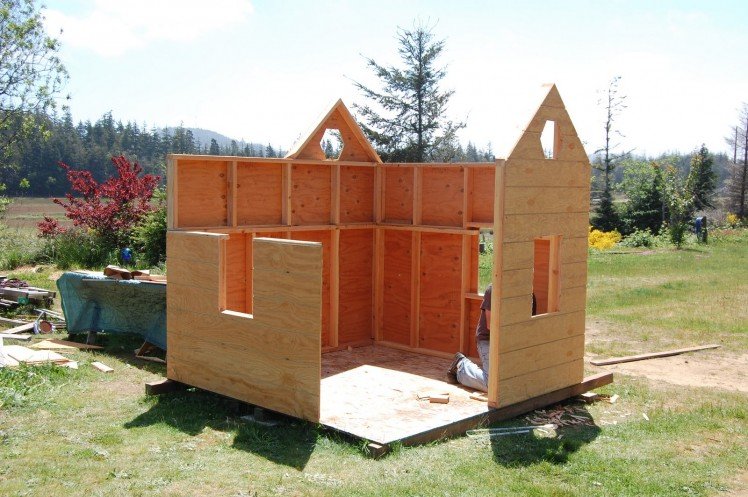
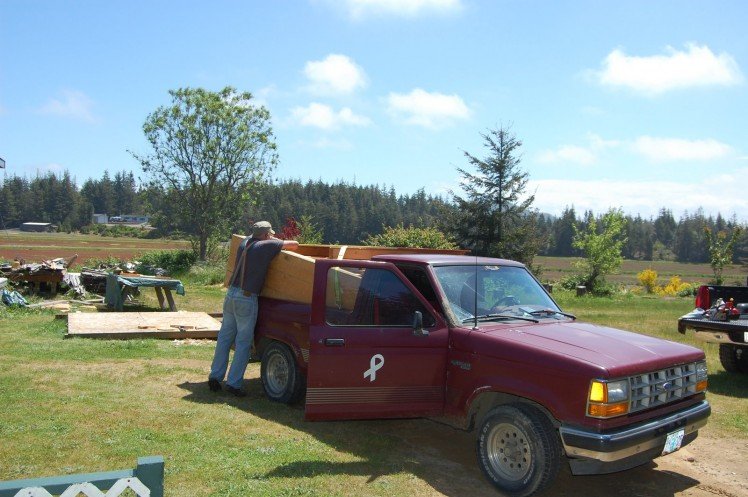
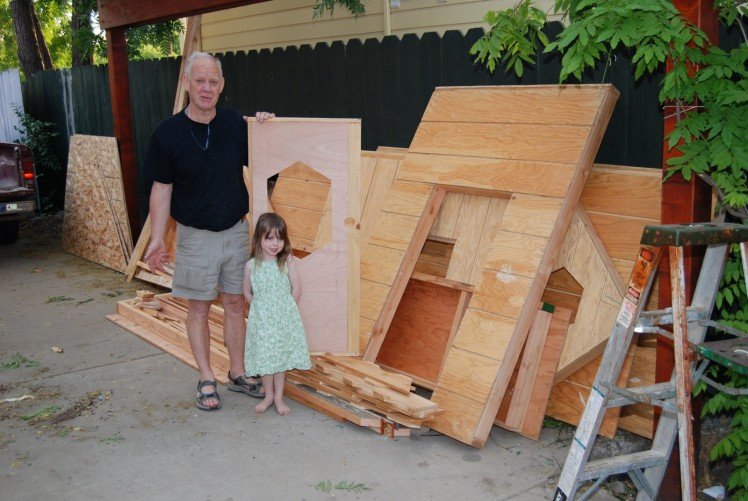
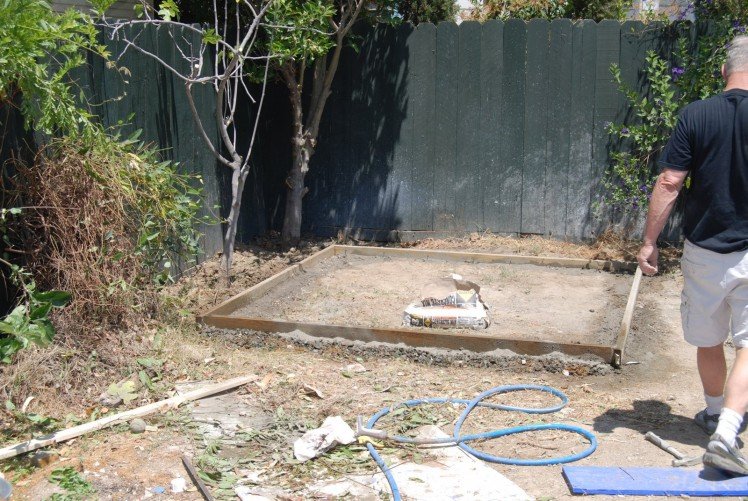
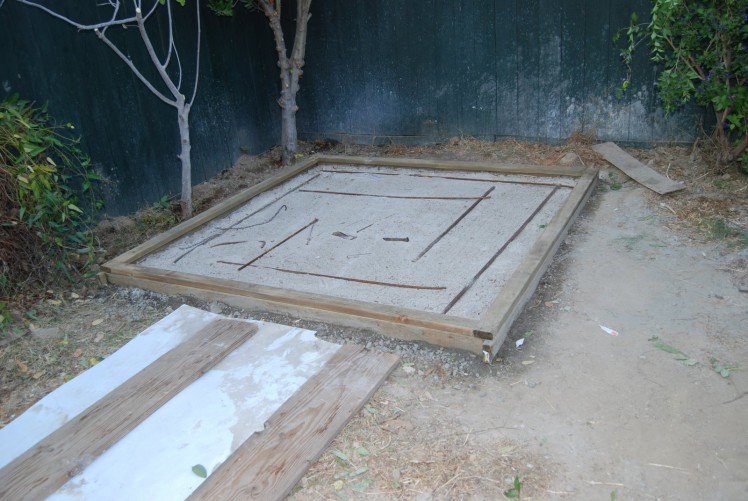
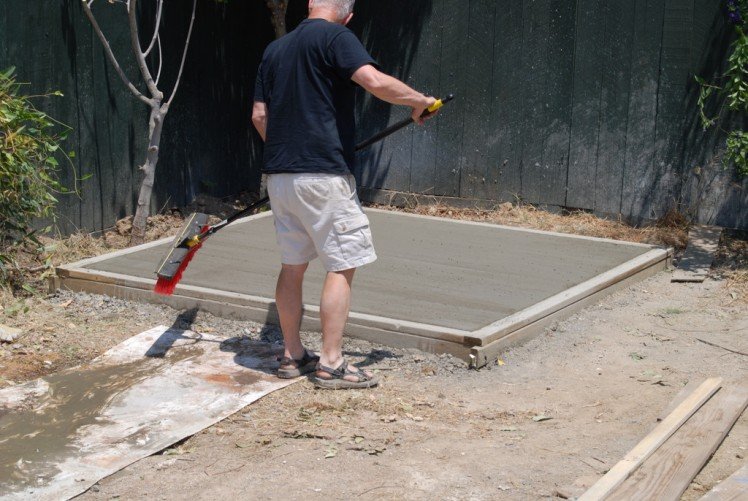
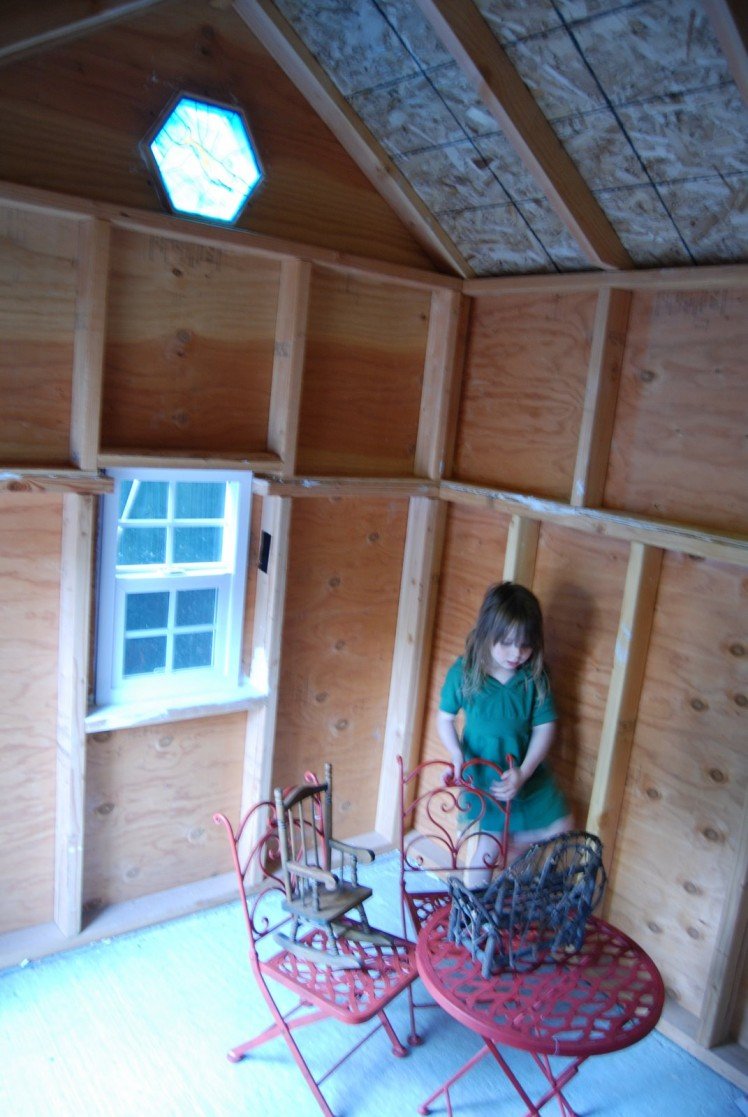
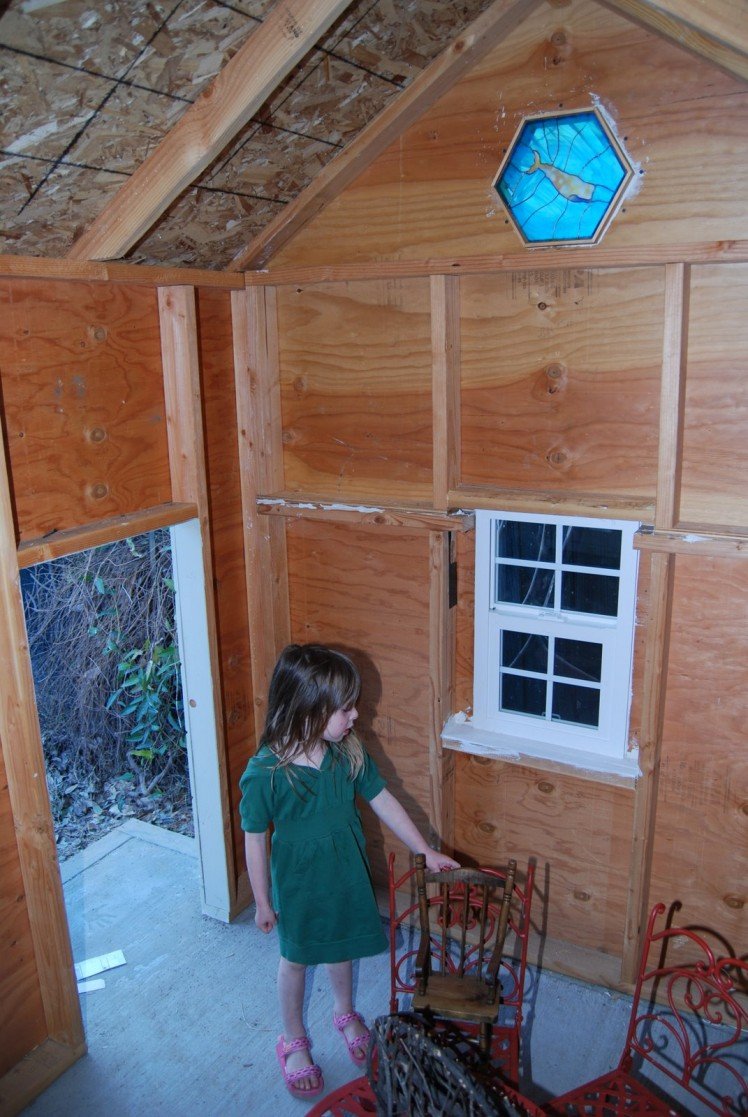
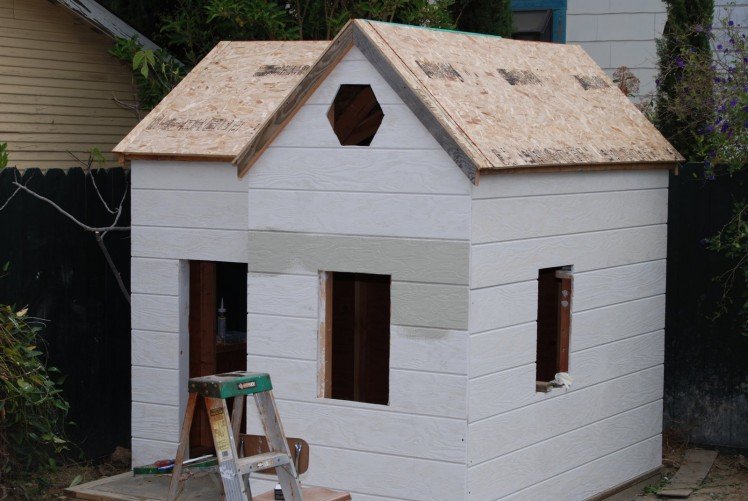
After some Googling for playhouse plans, this one fit the bill, http://www.woodmanor.net/Little-miss-playhouse-plans.html The dimensions are 8x8x8 feet.My Dad framed it in Oregon, took it apart, and then drove it down to my place in California where we assembled it together.
Step 2: Roofing
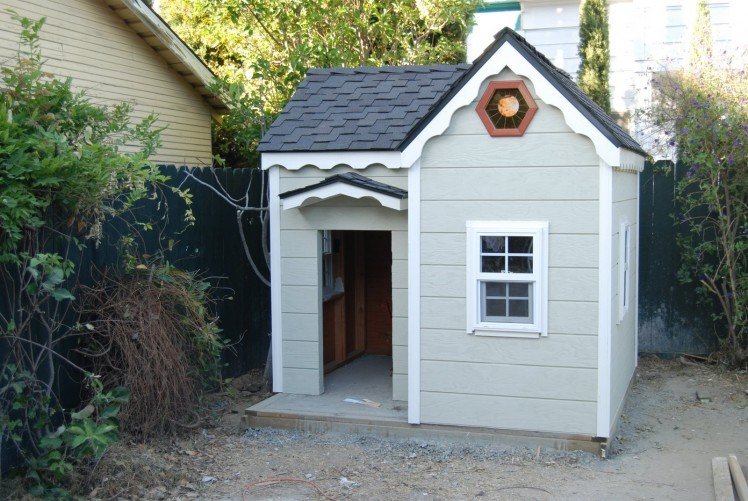
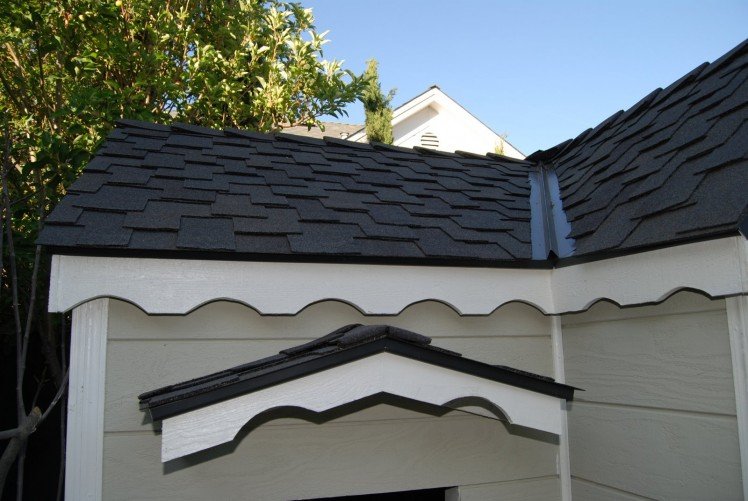
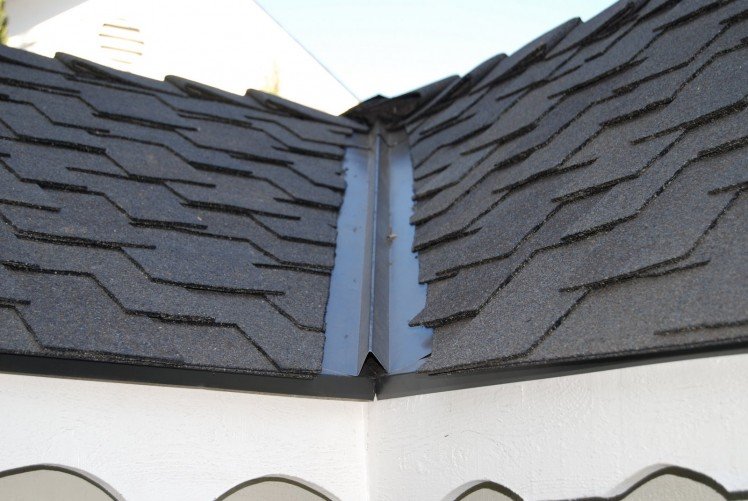
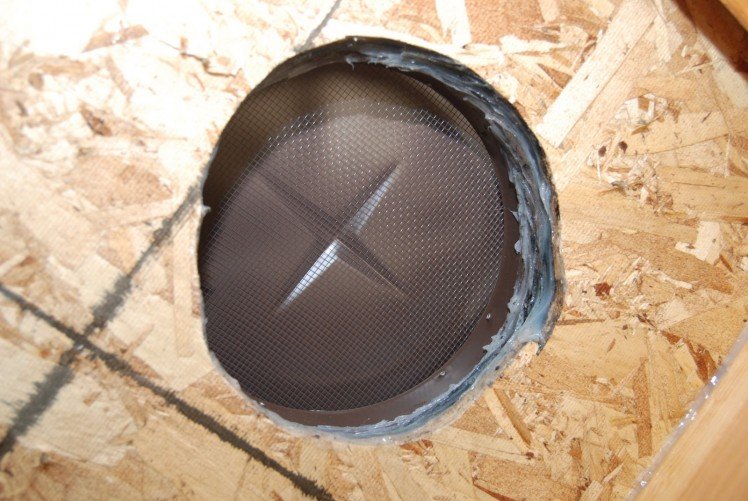
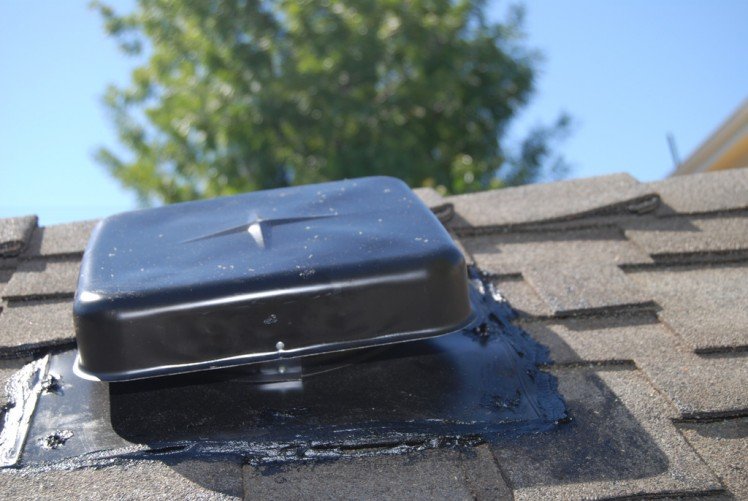 Next up was the roof. Roofing pretty much sucks. I'd probably pay someone if I had to do it again.After the roof was on, the playhouse became really hot inside. I added a roof vent to let the hot air out which cooled things down nicely.
Next up was the roof. Roofing pretty much sucks. I'd probably pay someone if I had to do it again.After the roof was on, the playhouse became really hot inside. I added a roof vent to let the hot air out which cooled things down nicely.Step 3: Electrical and Audio/Video Wiring
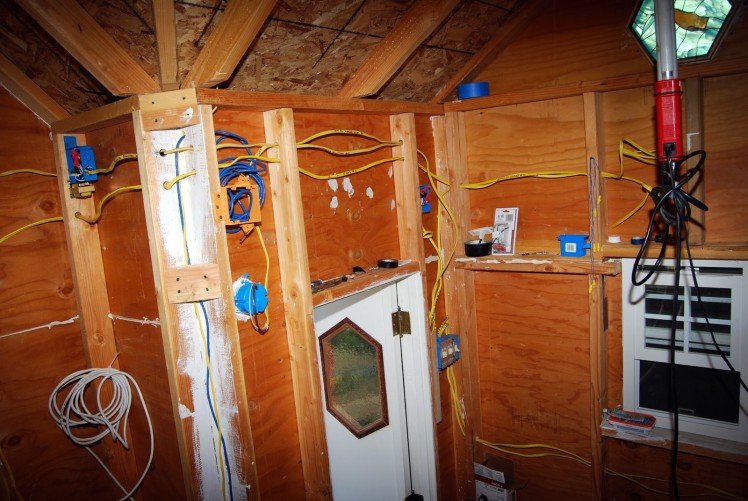
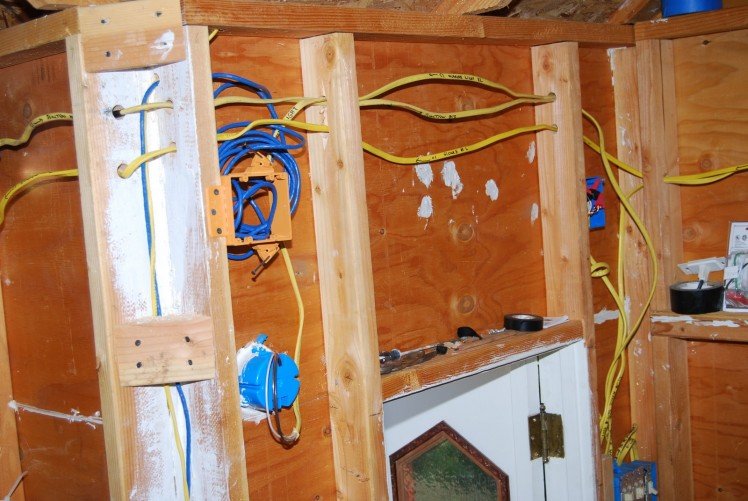
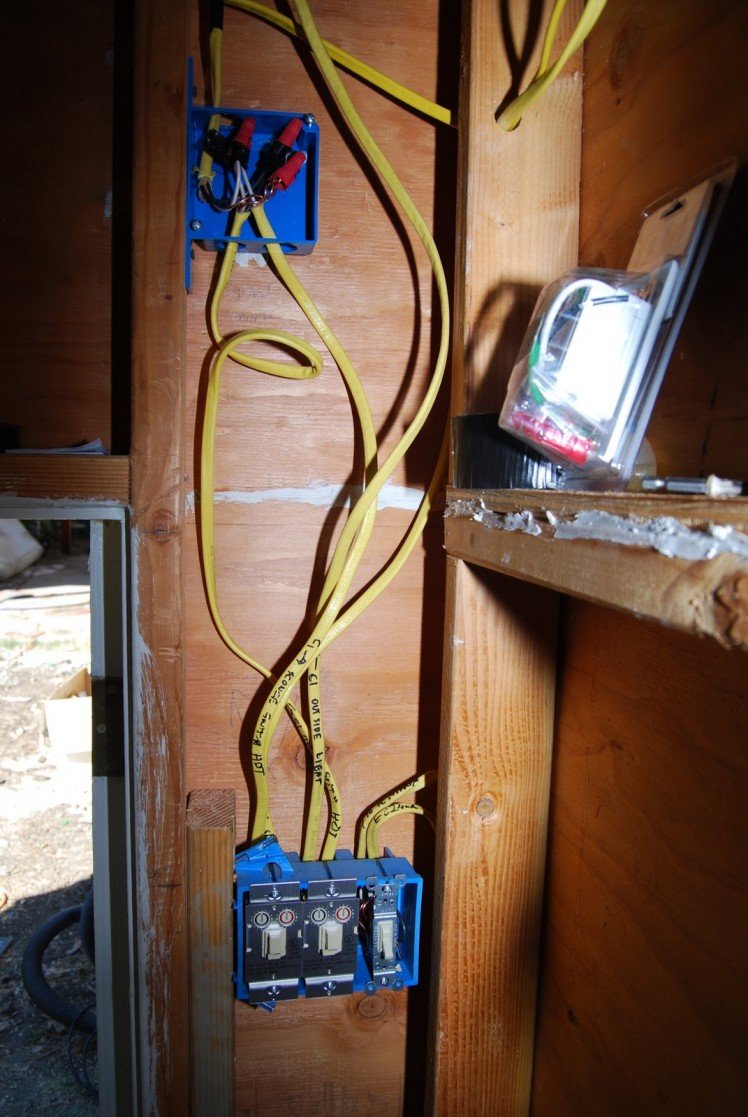
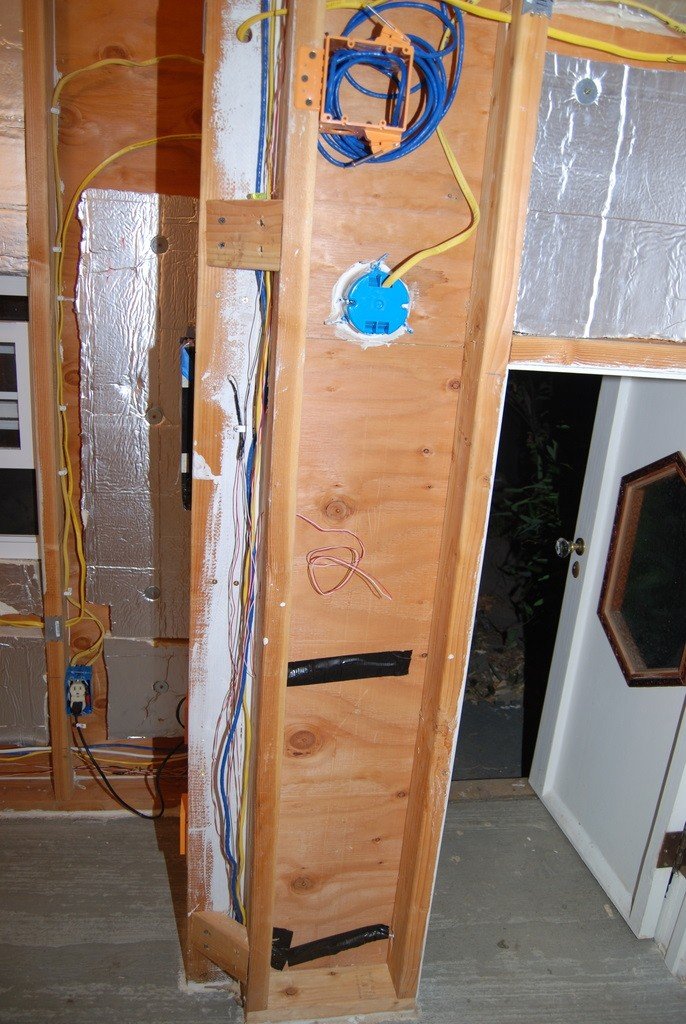
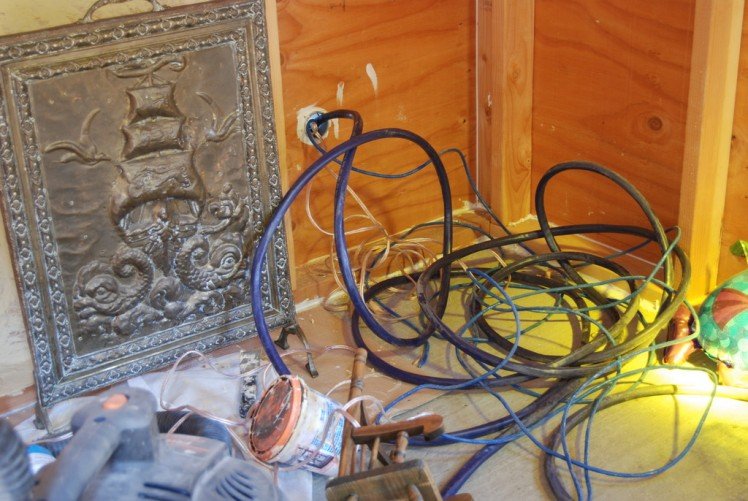
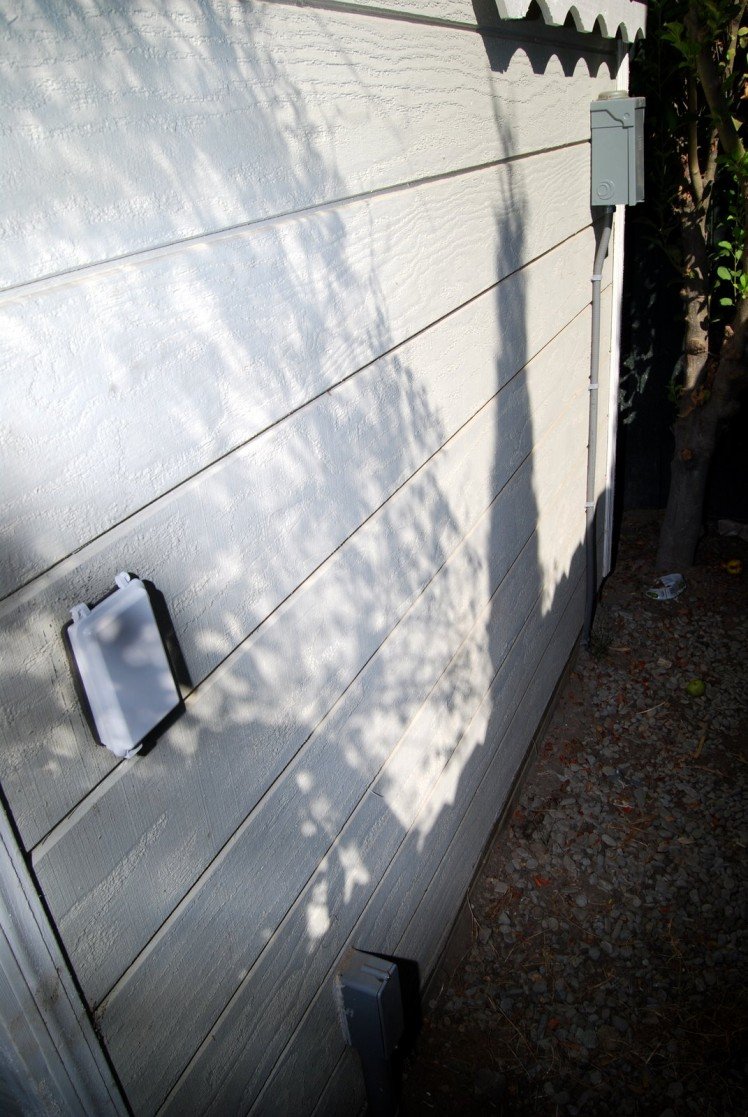
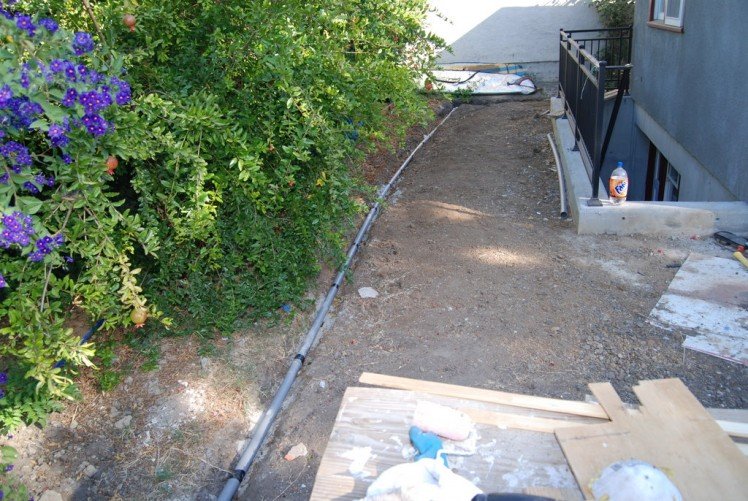
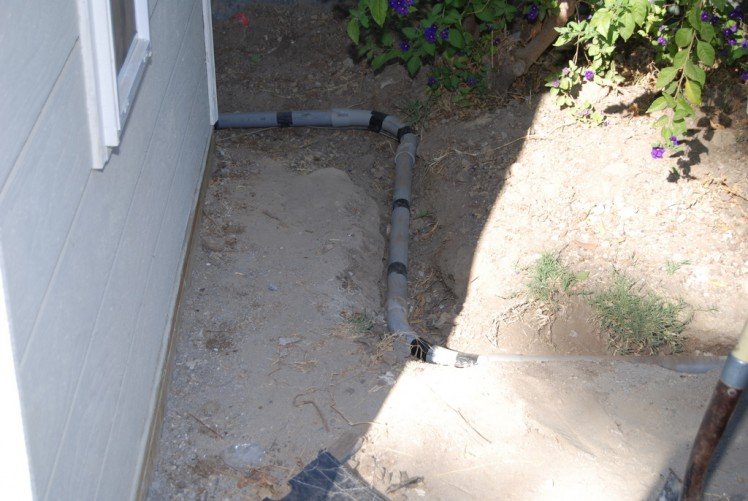
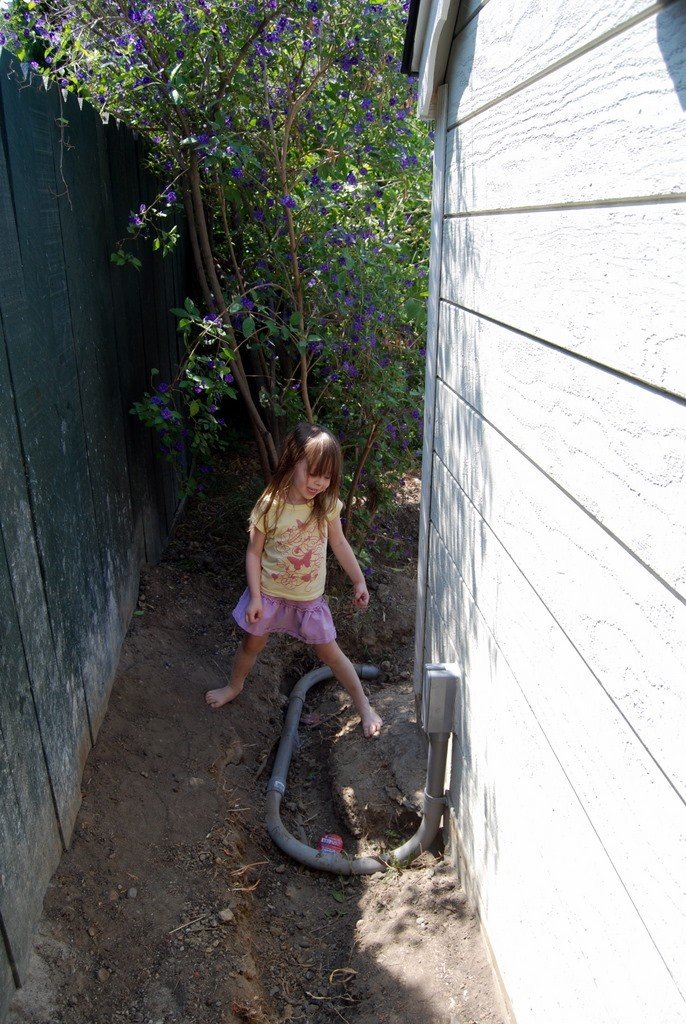
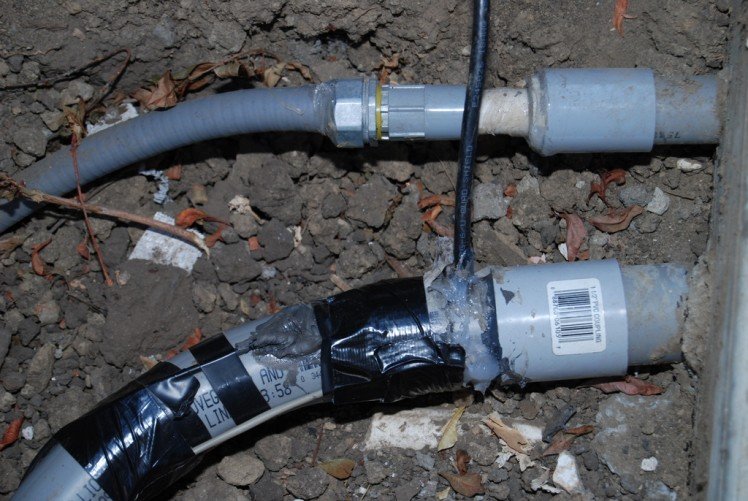 The electrical was fun although digging the trench was a back breaker. The playhouse has two AC circuits and a breaker panel attached to the back.I also pulled in structured wiring combo cable (one cable sheath with 2 CAT 5e, 2 COAX, and 2 Fibers), speaker wire, and a whole lot of wires (using thermostat wire) for the sensors for the Magic Mirror.
The electrical was fun although digging the trench was a back breaker. The playhouse has two AC circuits and a breaker panel attached to the back.I also pulled in structured wiring combo cable (one cable sheath with 2 CAT 5e, 2 COAX, and 2 Fibers), speaker wire, and a whole lot of wires (using thermostat wire) for the sensors for the Magic Mirror.Step 4: The Magic Mirror
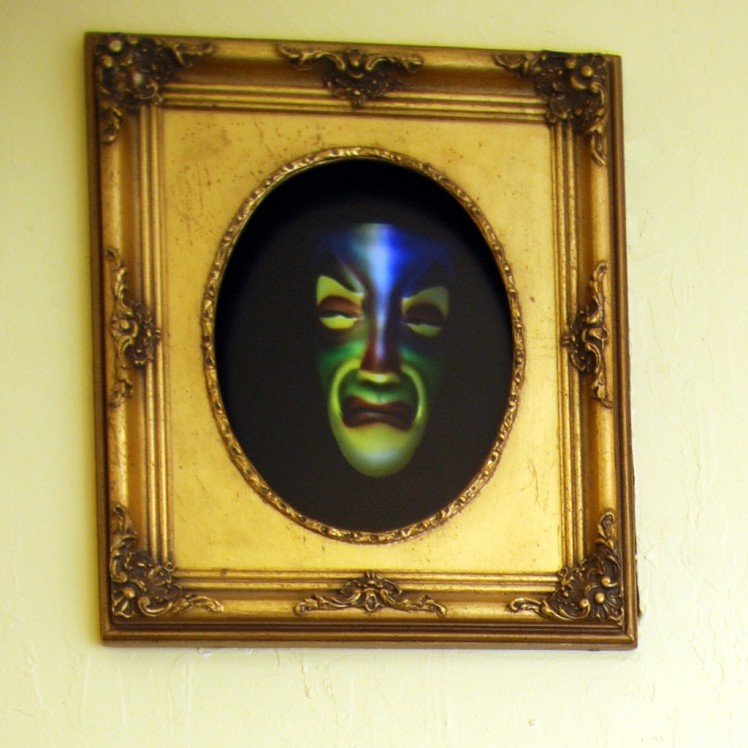
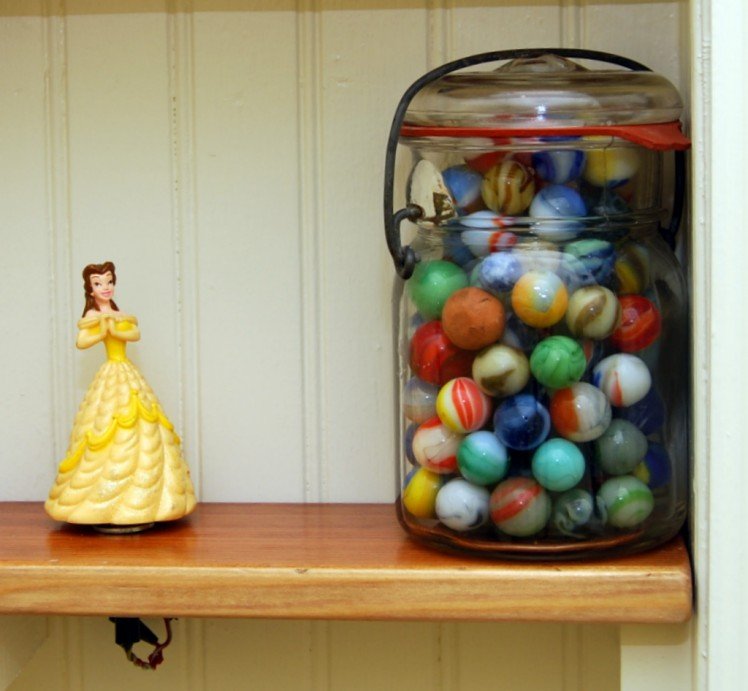
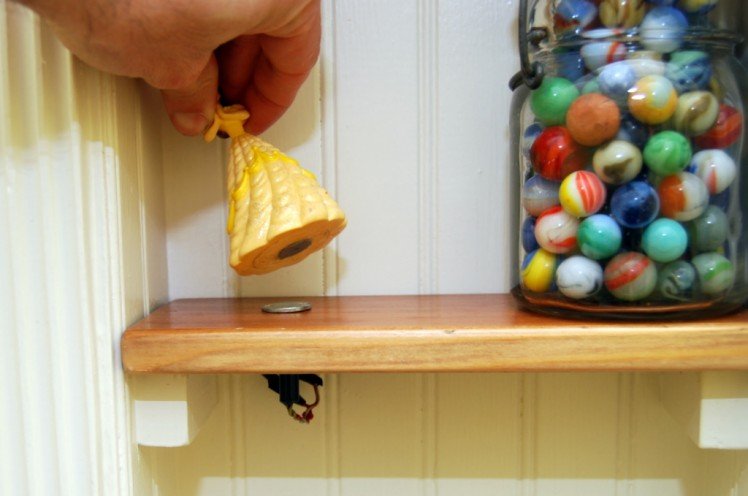
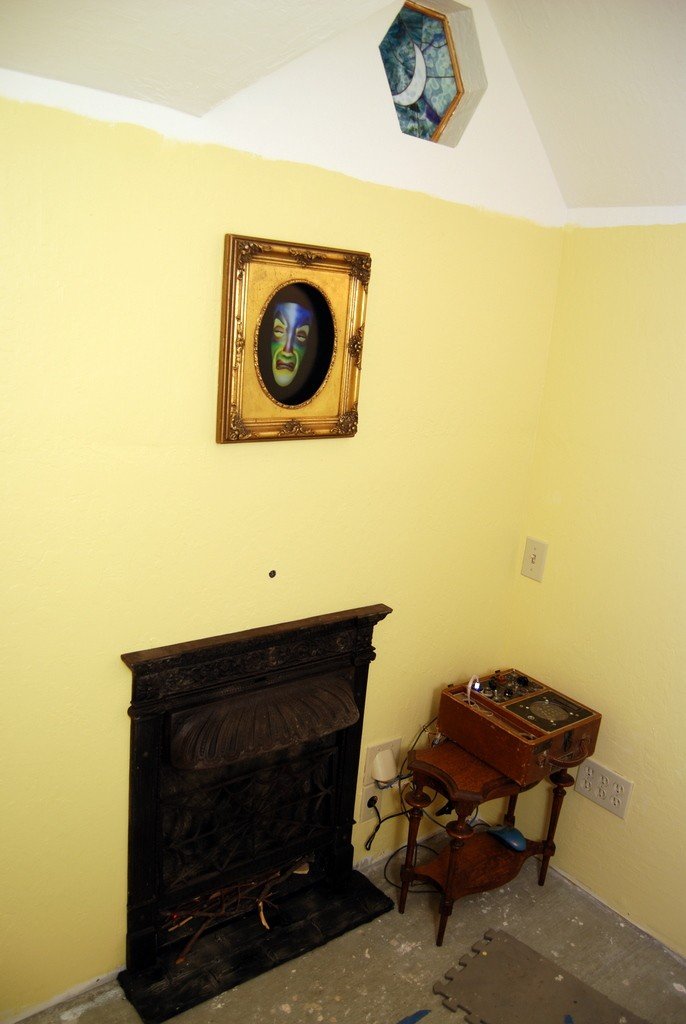
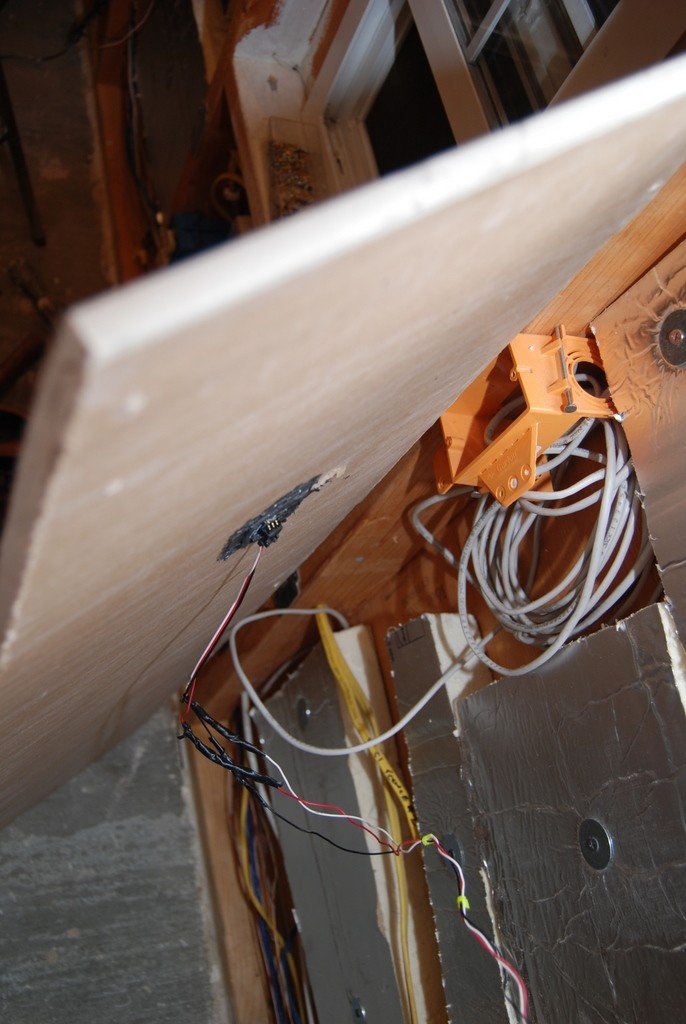
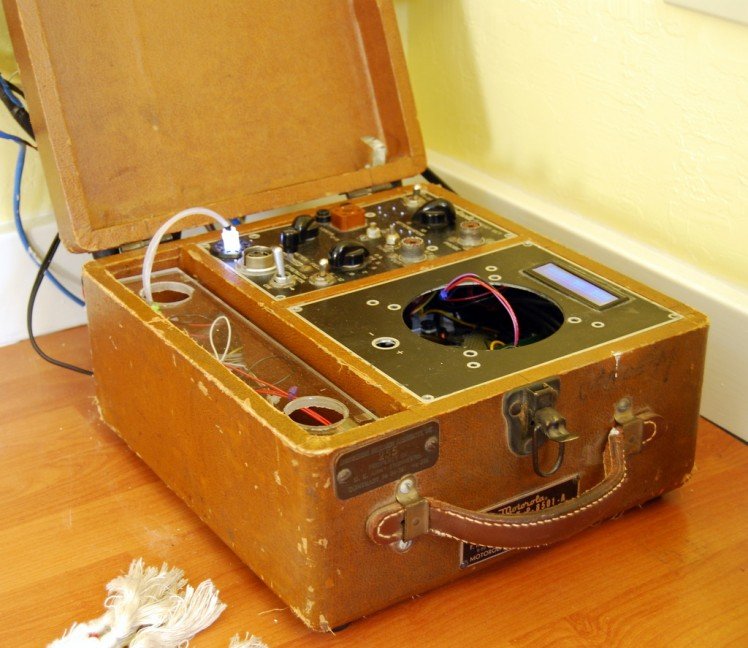
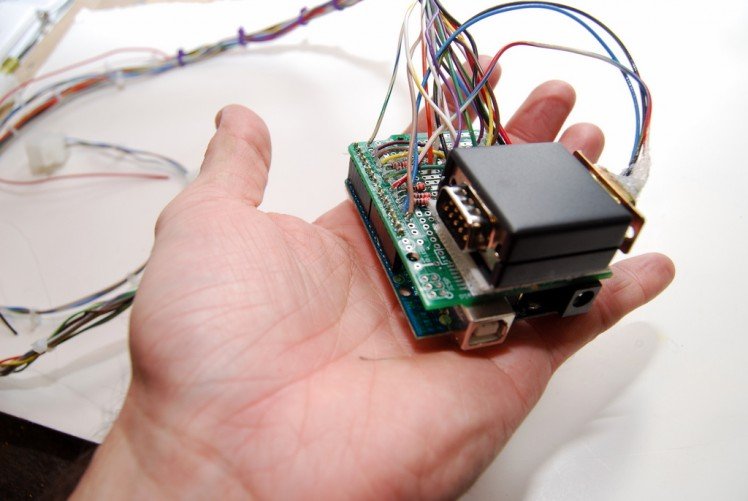
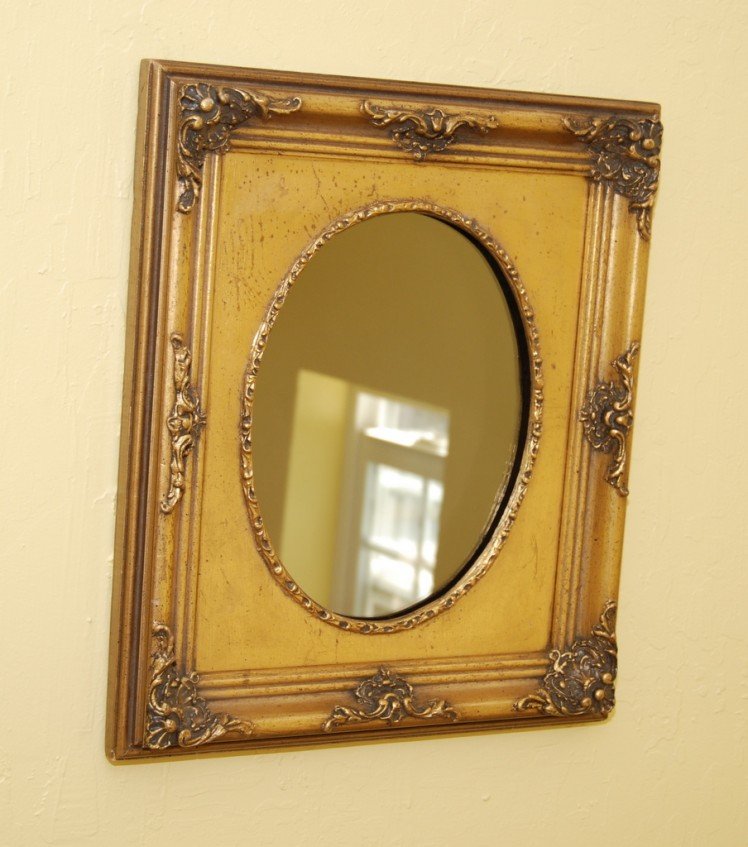 The Magic Mirror is the center piece of the playhouse. Its interactive and responds to various sensors (proximity, touch, and reed switches) that are embedded within the playhouse.The full Instructable on the Magic Mirror is here . I also recently finished a software product version of the Magic Mirror at http://diymagicmirror.com
The Magic Mirror is the center piece of the playhouse. Its interactive and responds to various sensors (proximity, touch, and reed switches) that are embedded within the playhouse.The full Instructable on the Magic Mirror is here . I also recently finished a software product version of the Magic Mirror at http://diymagicmirror.com Step 5: TV and Sound System
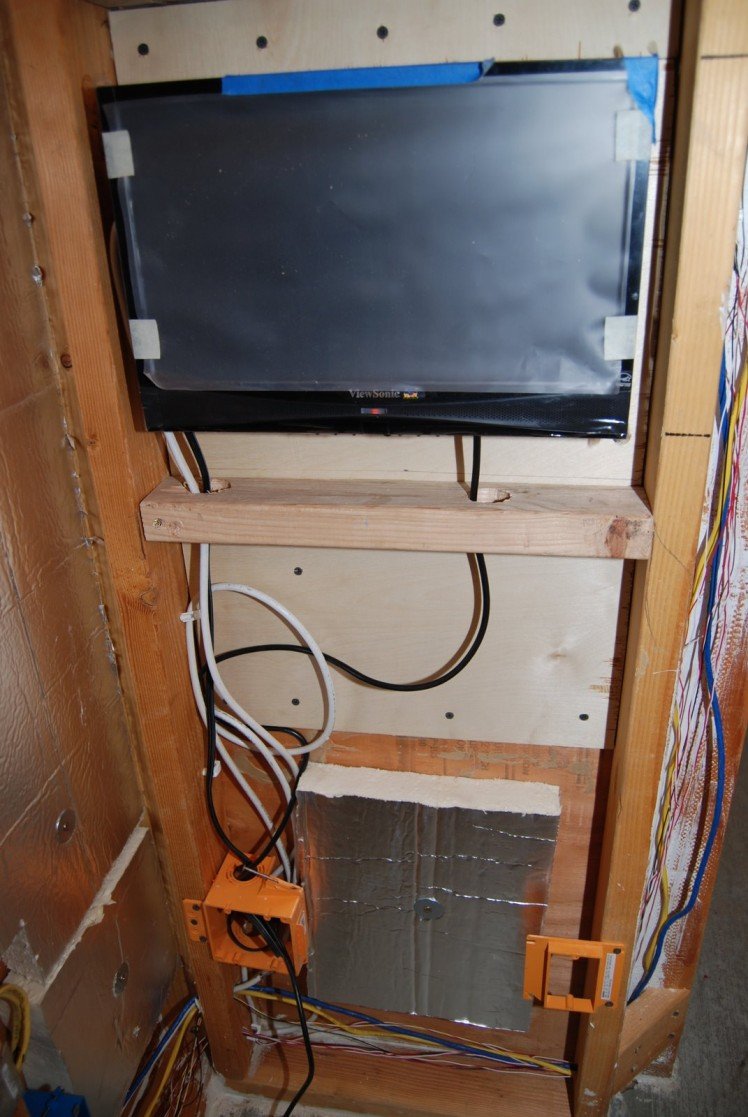
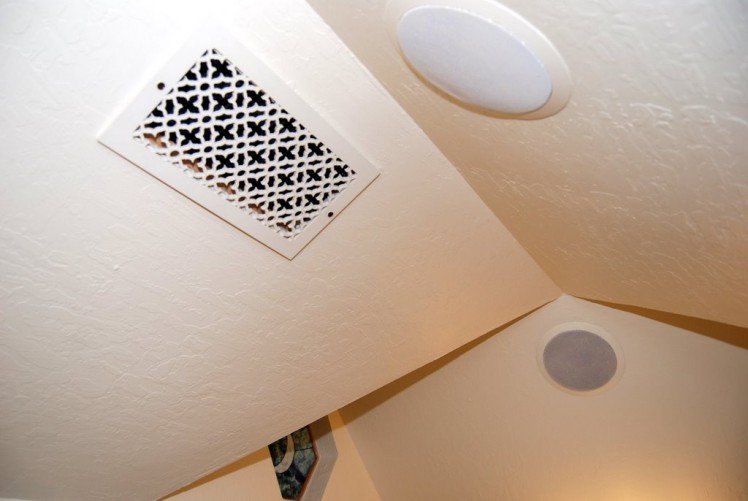
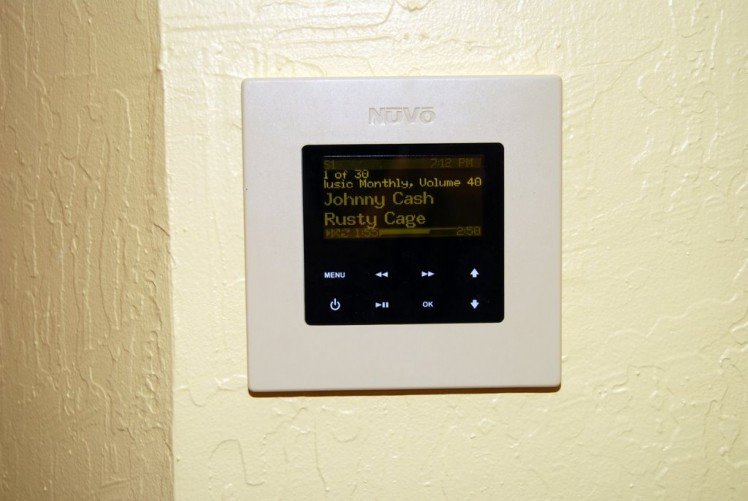 The TV is recessed in the wall and attached with a flush LCD mount.I had a Nuvo Grand Concerto whole house audio system already in the main house and had an extra zone so I just needed to run speaker and Cat 5 to wire the Playhouse for sound. The Nuvo Grand Conerto is very nice, they run $3,500 & up retail but you can pick one up off eBay for $2K. I picked up the in-wall ceiling speakers from www.hometech.com that weren't too expensive ($80) and sound pretty good. The speaker grills are paintable to blend in with the ceiling.
The TV is recessed in the wall and attached with a flush LCD mount.I had a Nuvo Grand Concerto whole house audio system already in the main house and had an extra zone so I just needed to run speaker and Cat 5 to wire the Playhouse for sound. The Nuvo Grand Conerto is very nice, they run $3,500 & up retail but you can pick one up off eBay for $2K. I picked up the in-wall ceiling speakers from www.hometech.com that weren't too expensive ($80) and sound pretty good. The speaker grills are paintable to blend in with the ceiling.Step 6: Insulation and Drywall
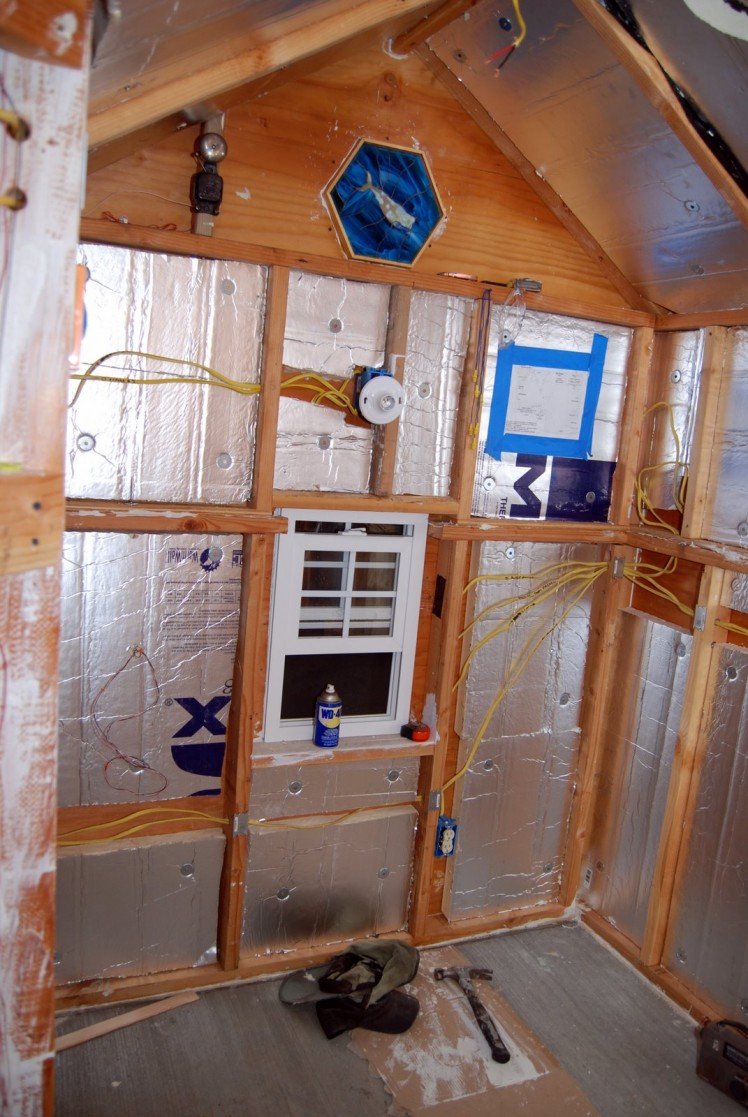
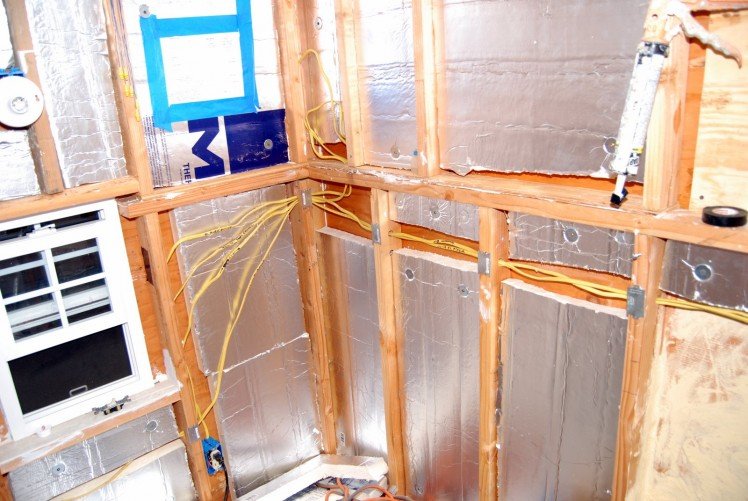
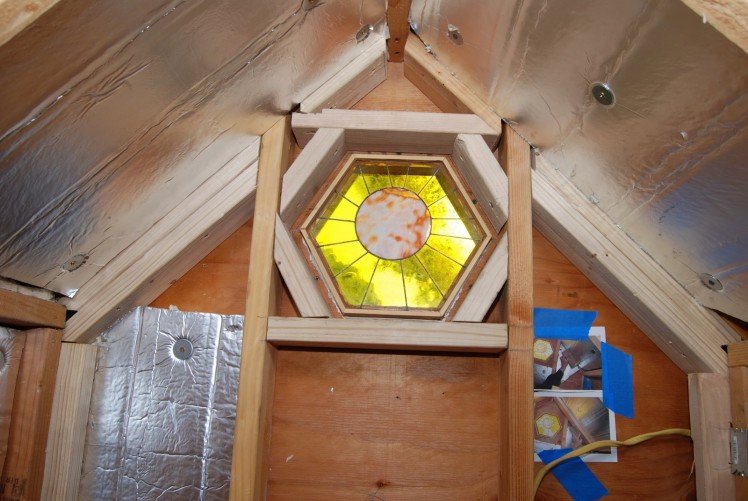
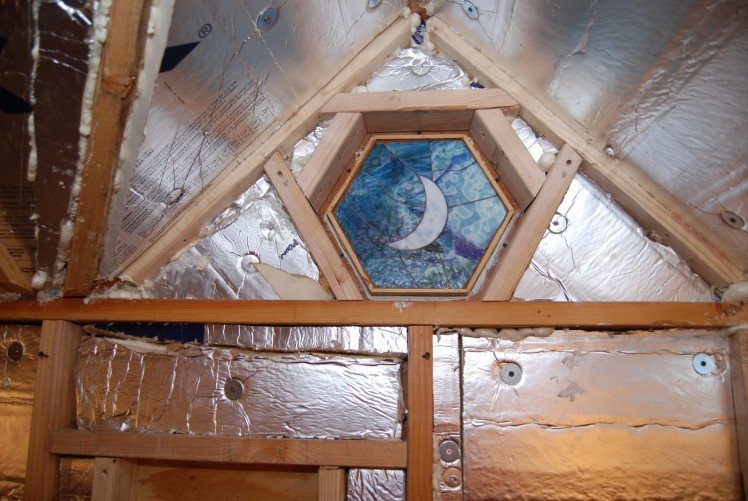
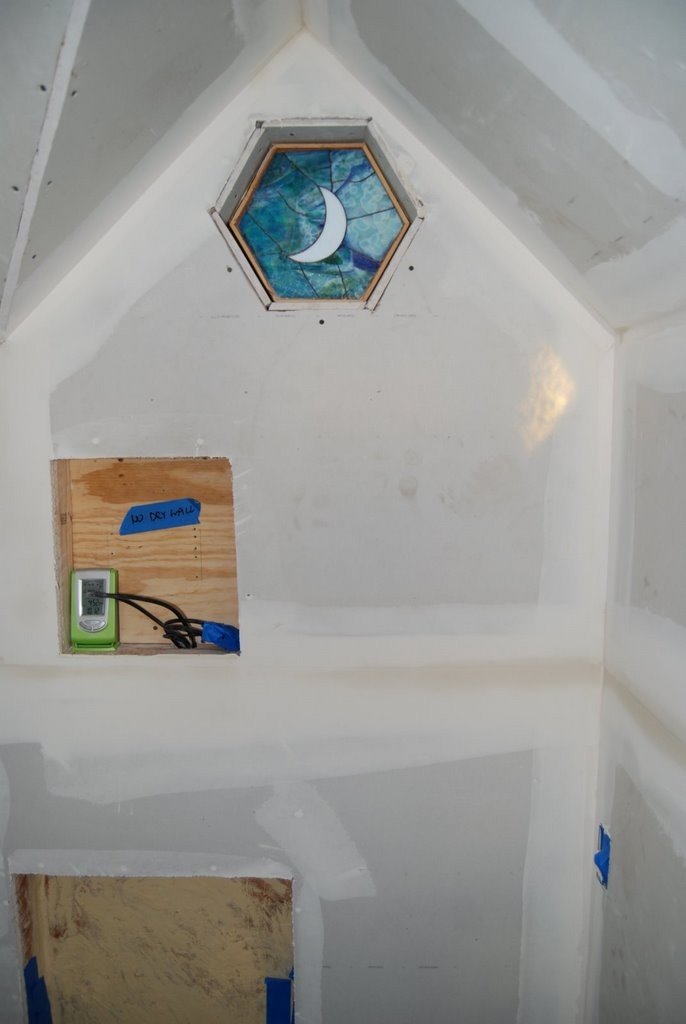
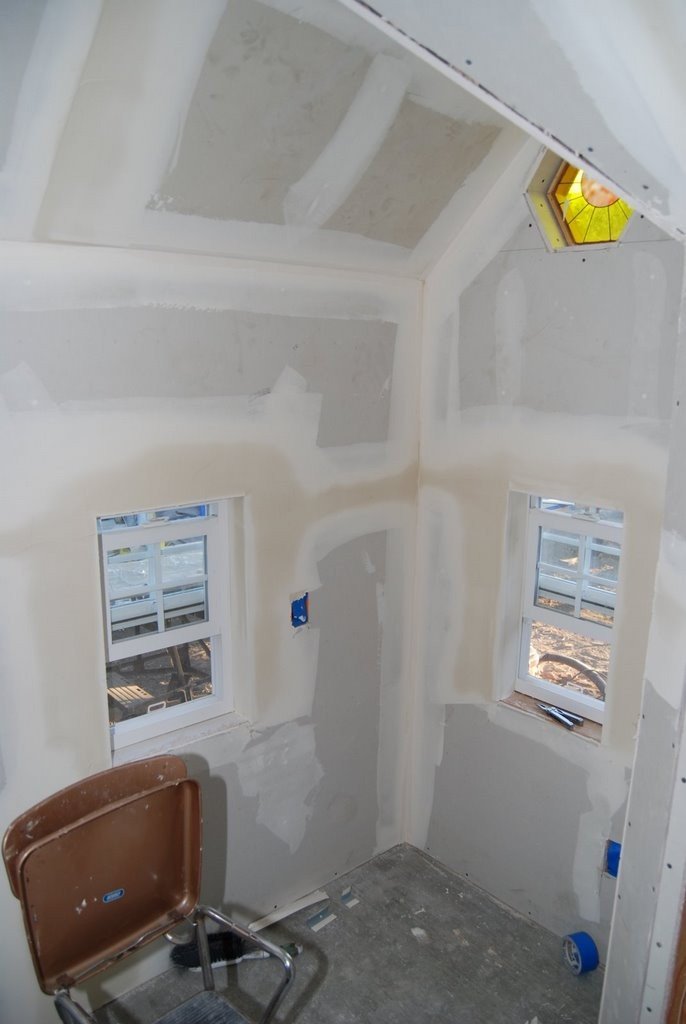
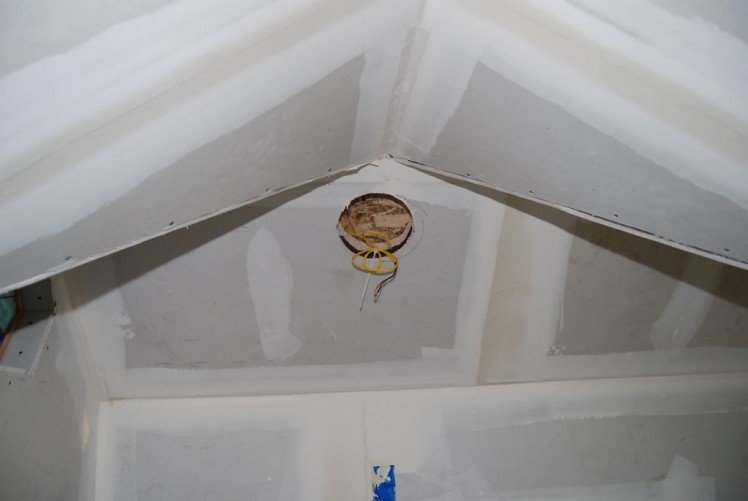 Since the walls are only 3.5" deep, I did some research to find the most efficient insulation by thickness which turned out to be the rigid foam type from R-Max. The thickest one I could find at Home Depot was 2". Its not cheap as far as insulation goes and runs $20 per 4x8 panel. It's very easy to work with though, just cut it to size and screw it in. Make sure to use a washer on top of the screw for more holding area.The drywall was the one thing I had someone else do which I'm glad I did. I found a local guy who did it for $300.
Since the walls are only 3.5" deep, I did some research to find the most efficient insulation by thickness which turned out to be the rigid foam type from R-Max. The thickest one I could find at Home Depot was 2". Its not cheap as far as insulation goes and runs $20 per 4x8 panel. It's very easy to work with though, just cut it to size and screw it in. Make sure to use a washer on top of the screw for more holding area.The drywall was the one thing I had someone else do which I'm glad I did. I found a local guy who did it for $300.Step 7: Lighting, Windows, and Door
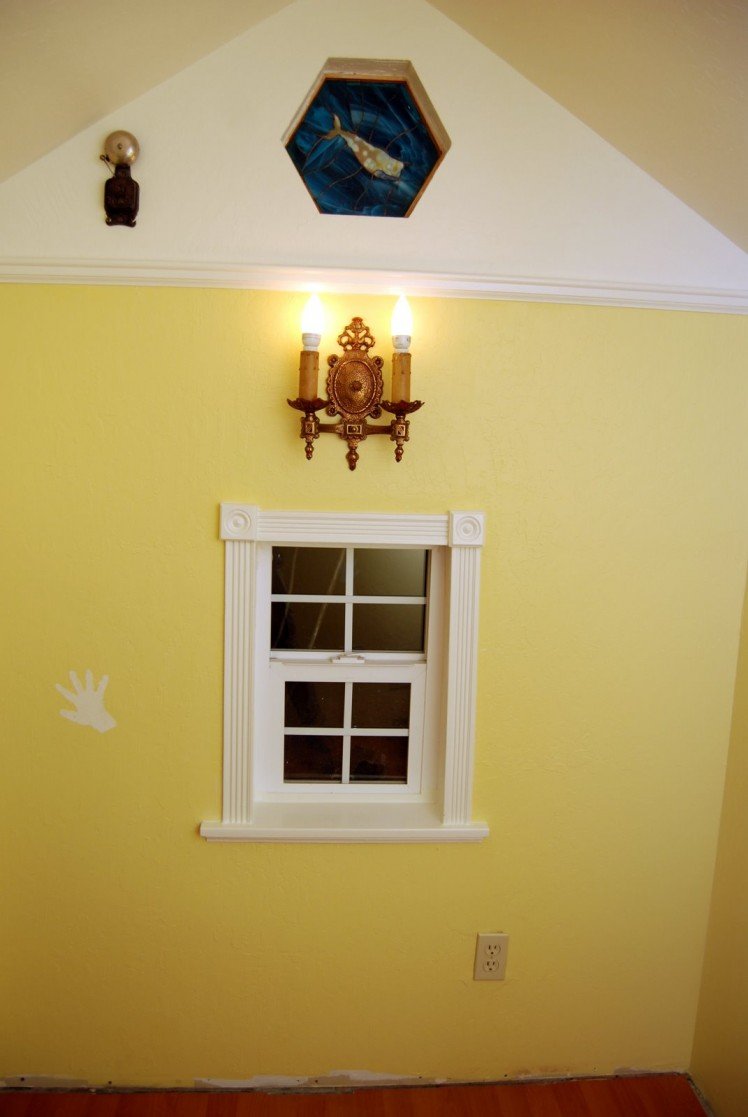
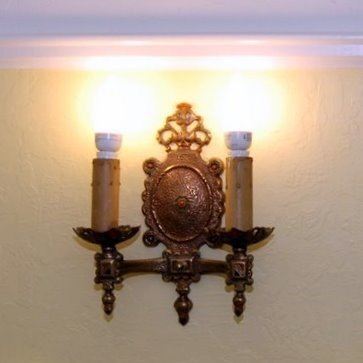
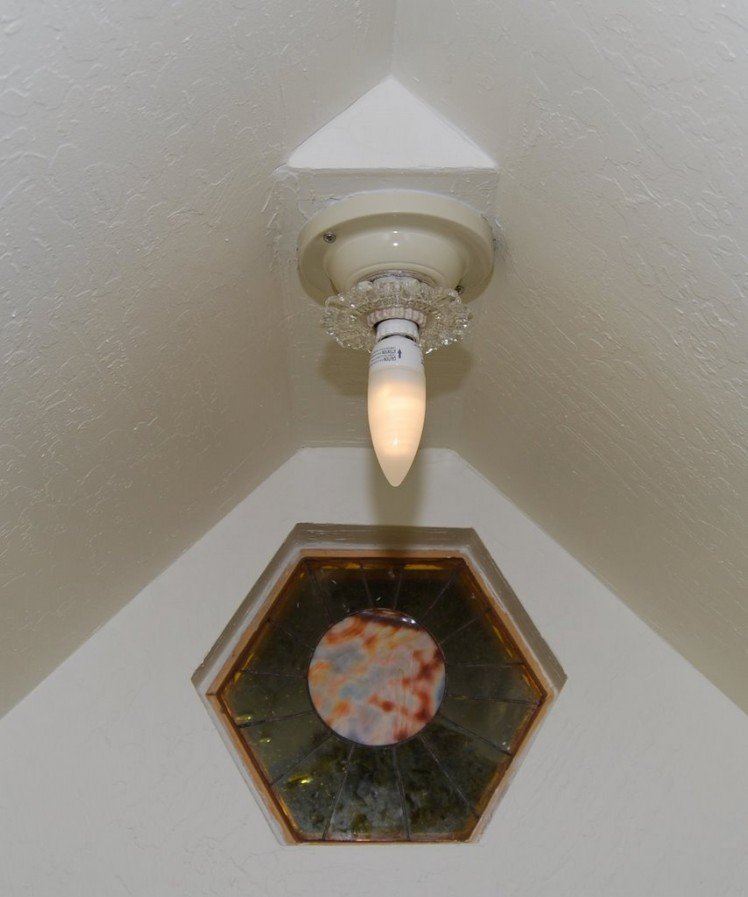
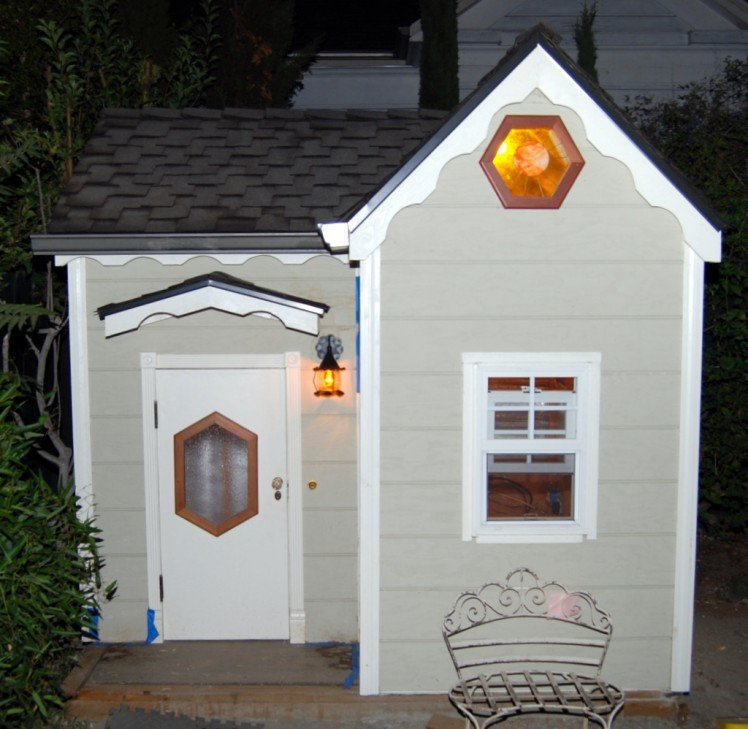
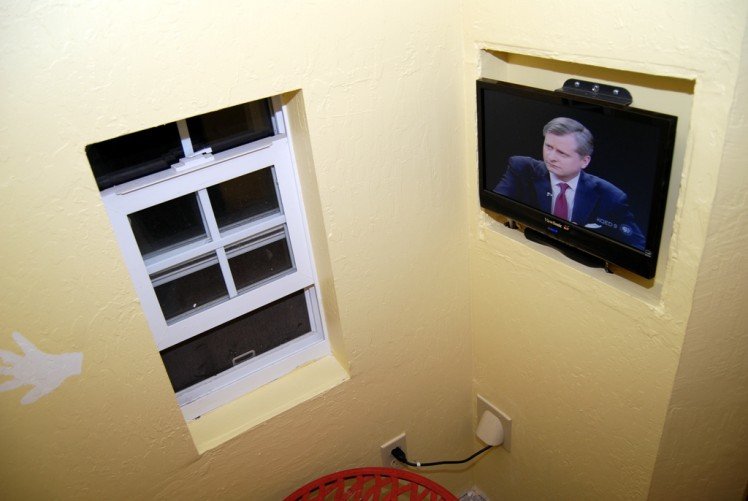
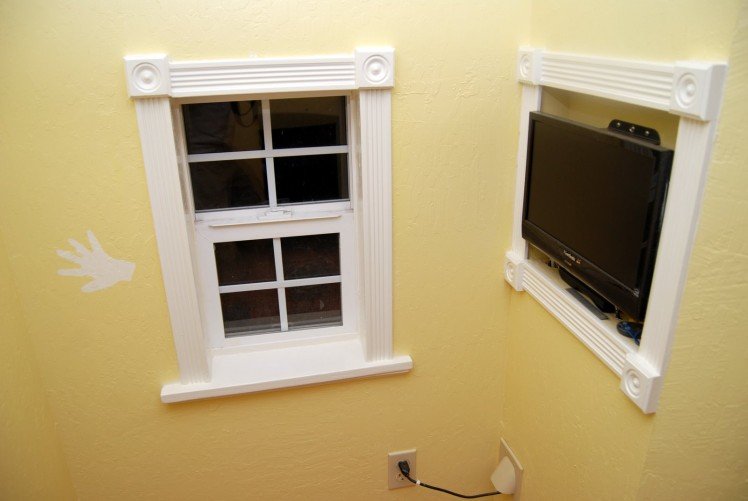
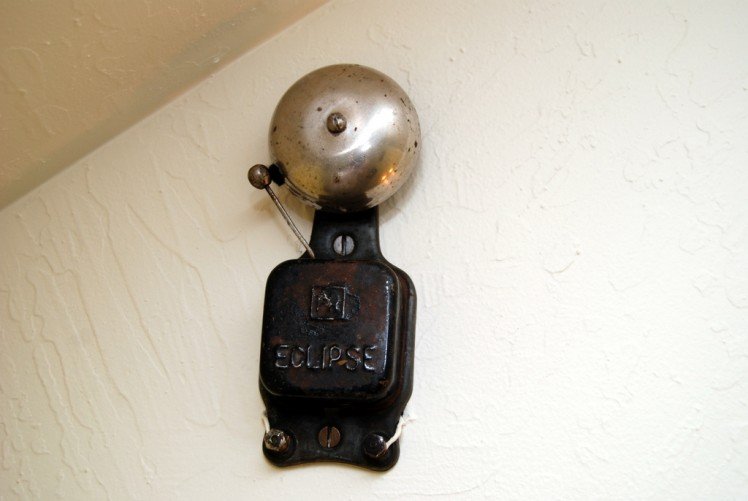
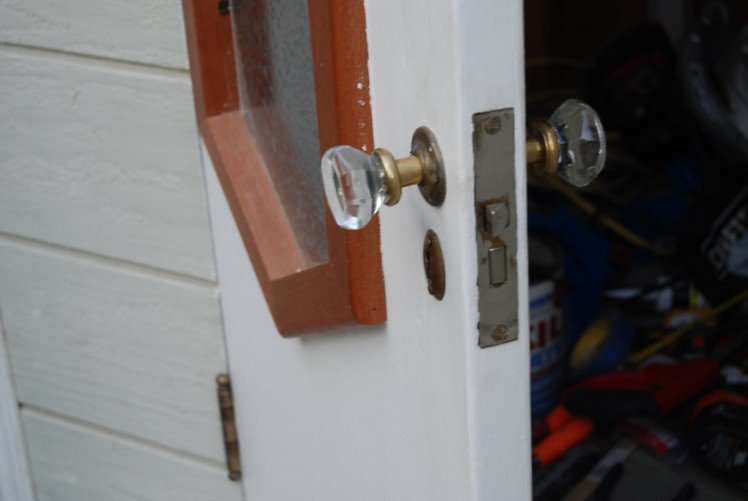
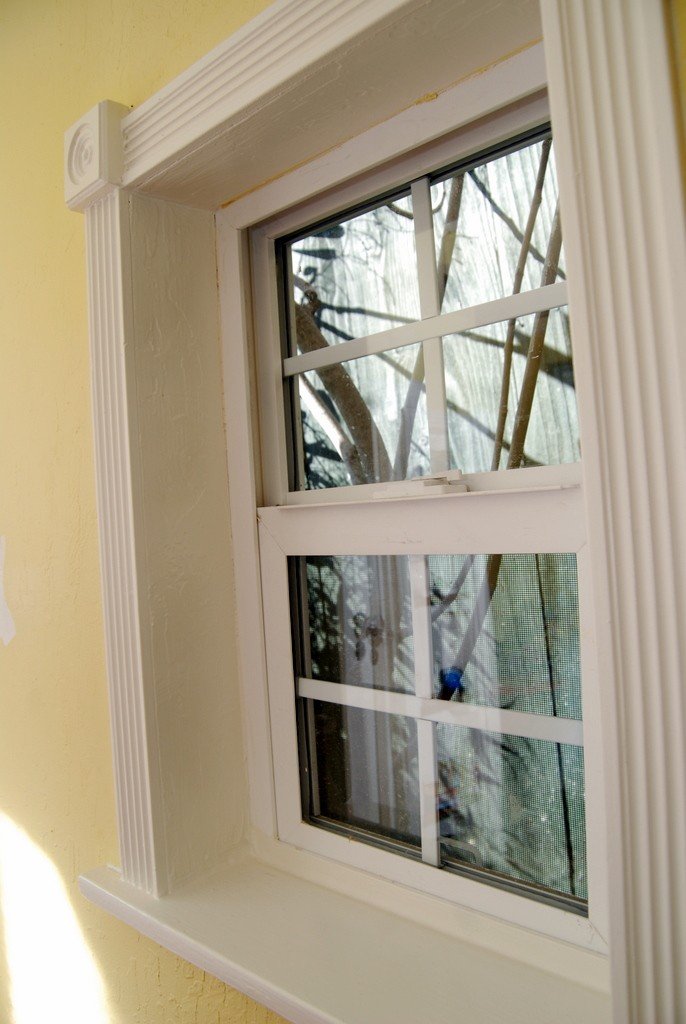 My wife is quite good at finding vintage light fixtures on eBay. She then takes them to a local lighting guy in town who re-wires them. Sylvania now makes a dimmable compact fluorescent bulb which you can see in the pictures, they work great.
My wife is quite good at finding vintage light fixtures on eBay. She then takes them to a local lighting guy in town who re-wires them. Sylvania now makes a dimmable compact fluorescent bulb which you can see in the pictures, they work great.Step 8: Floor, Picture Rail Molding, and Baseboard
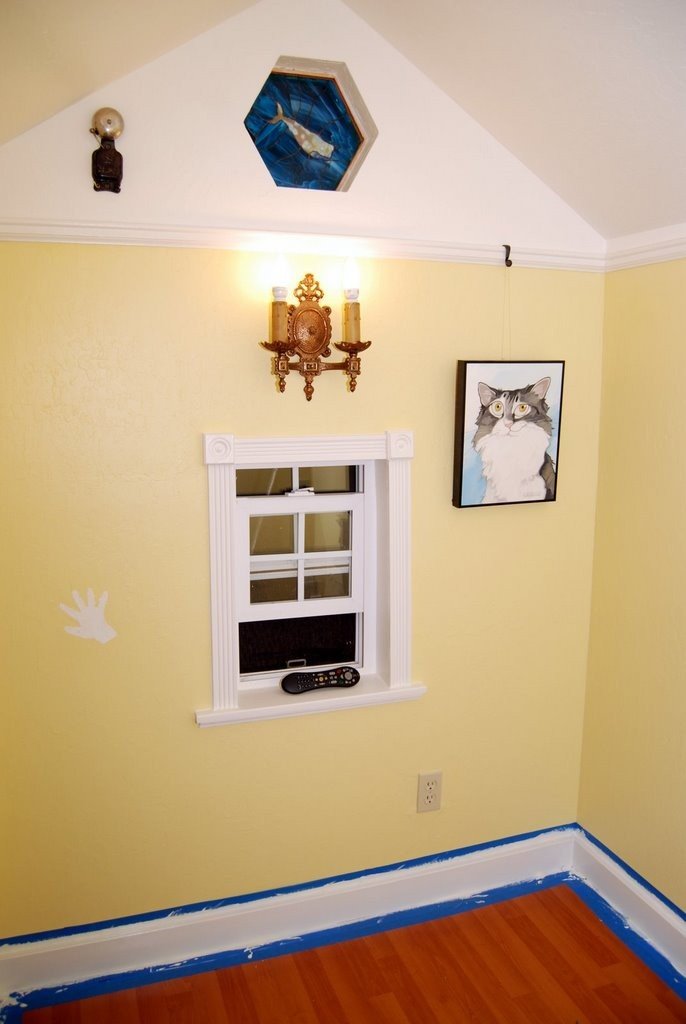
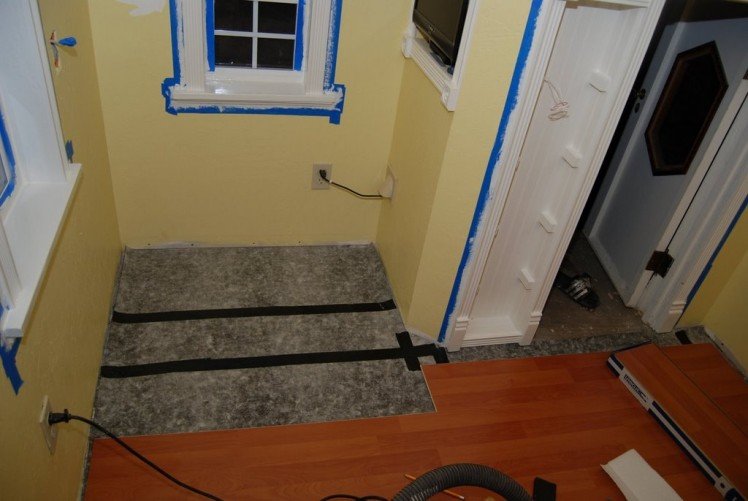
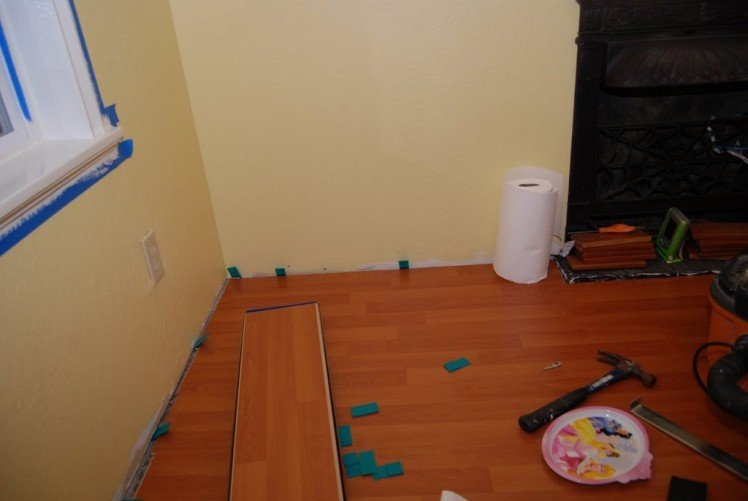
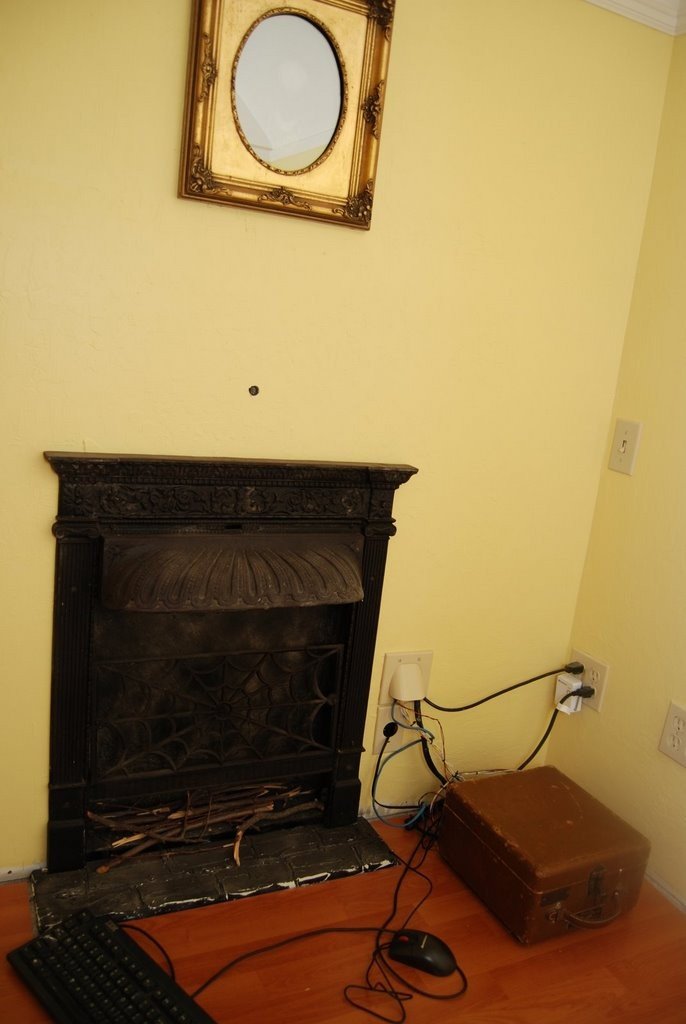
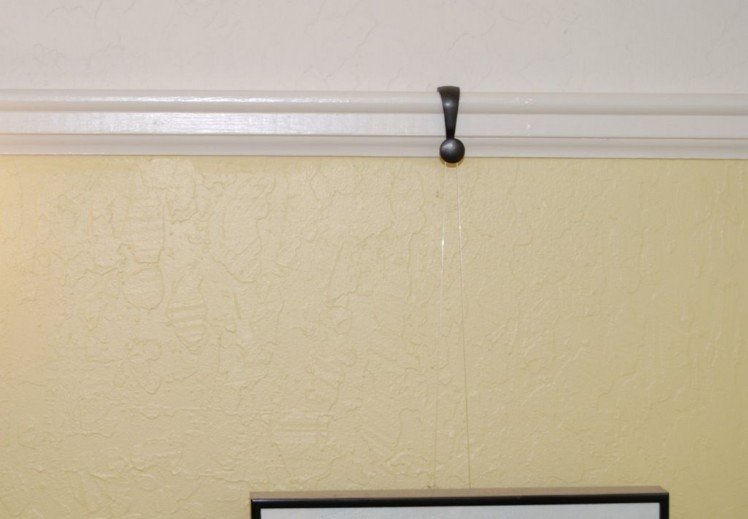
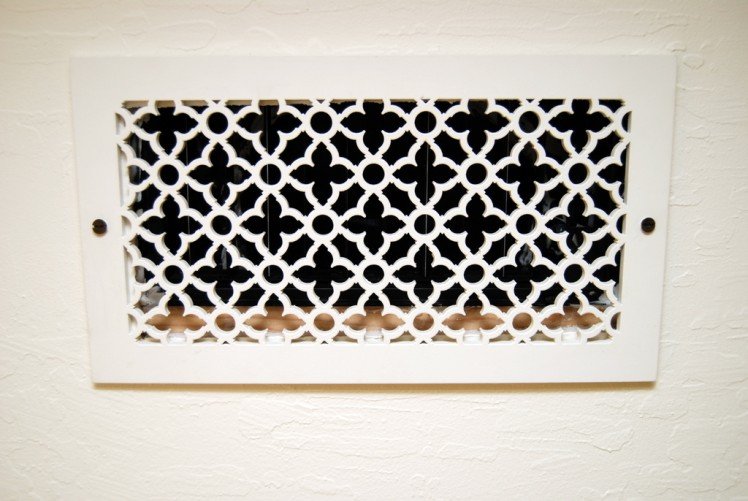
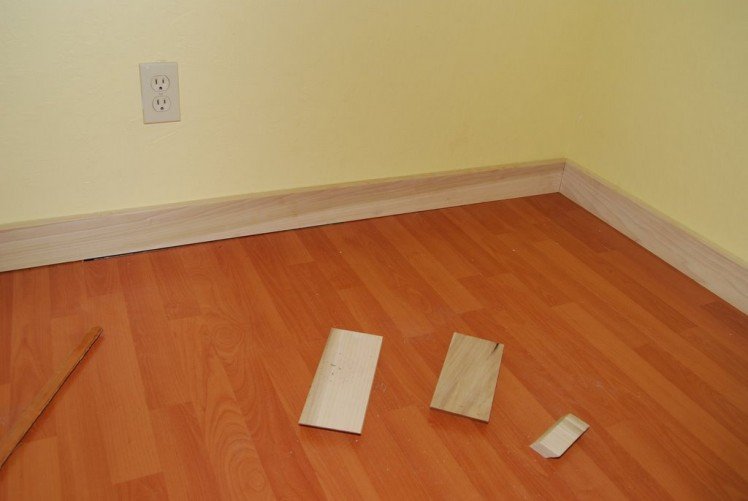
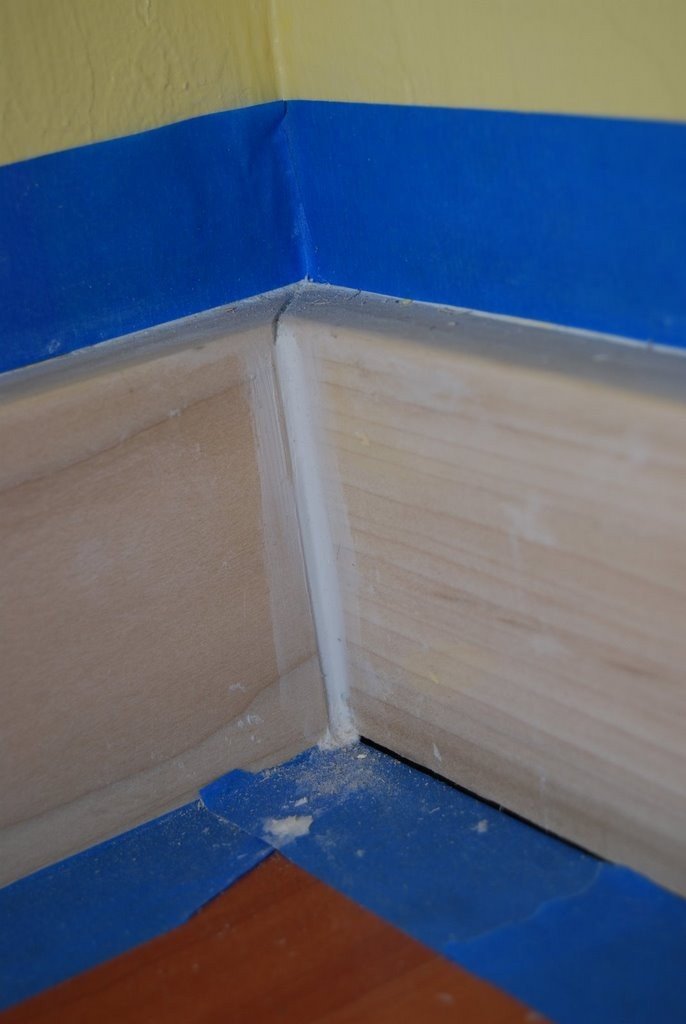
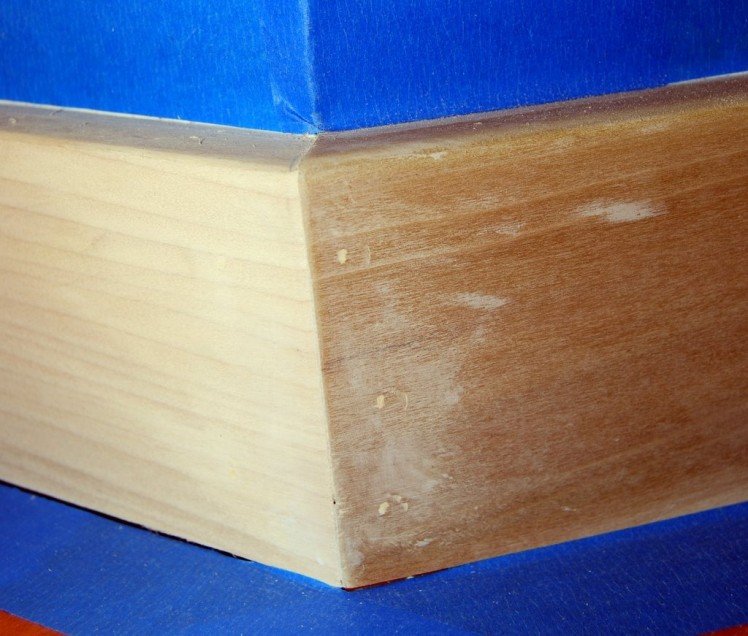 I installed laminate flooring. There are plenty of good tutorials out there for installing laminate. Do be sure to leave a 1/4" at the edges to allow for expansion.Picture rail molding has a small gap behind it that lets you hang a hook and picture frame. You can't really see it in the photos but using a high sheen oil based paint makes the molding really pop in contrast to the flat water based paint on the walls. Be sure also to sand the baseboard & give the top a nice rounded edge.One big lesson learned on molding & baseboard: Spend the $10 on an angle finder toolangle finder tool. I didn't figure this out until the last few cuts unfortunately. Many corners aren't exactly 90 degrees so this will allow you to cut the exact angles needed with your miter saw.
I installed laminate flooring. There are plenty of good tutorials out there for installing laminate. Do be sure to leave a 1/4" at the edges to allow for expansion.Picture rail molding has a small gap behind it that lets you hang a hook and picture frame. You can't really see it in the photos but using a high sheen oil based paint makes the molding really pop in contrast to the flat water based paint on the walls. Be sure also to sand the baseboard & give the top a nice rounded edge.One big lesson learned on molding & baseboard: Spend the $10 on an angle finder toolangle finder tool. I didn't figure this out until the last few cuts unfortunately. Many corners aren't exactly 90 degrees so this will allow you to cut the exact angles needed with your miter saw.Step 9: Built-in Bookshelf
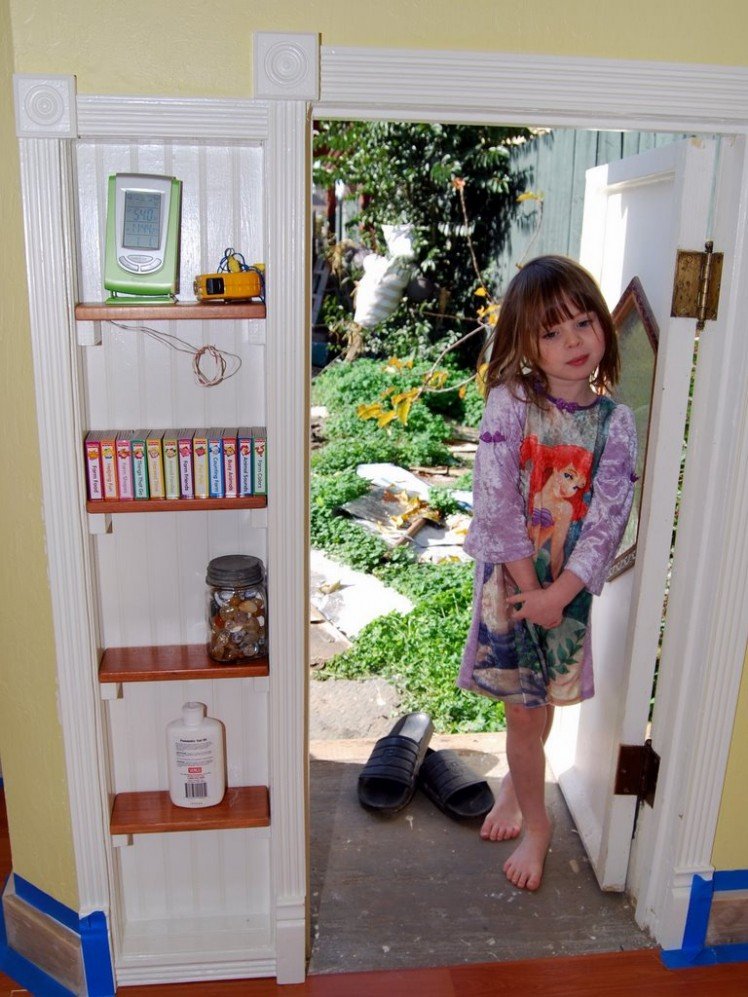
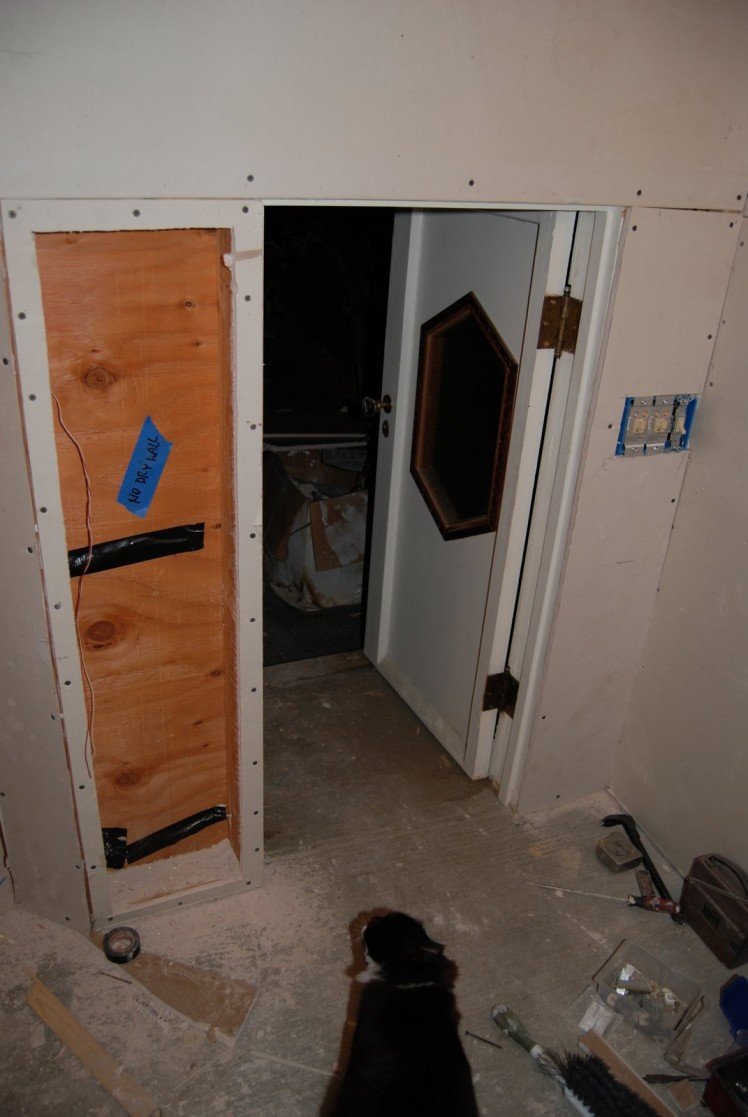
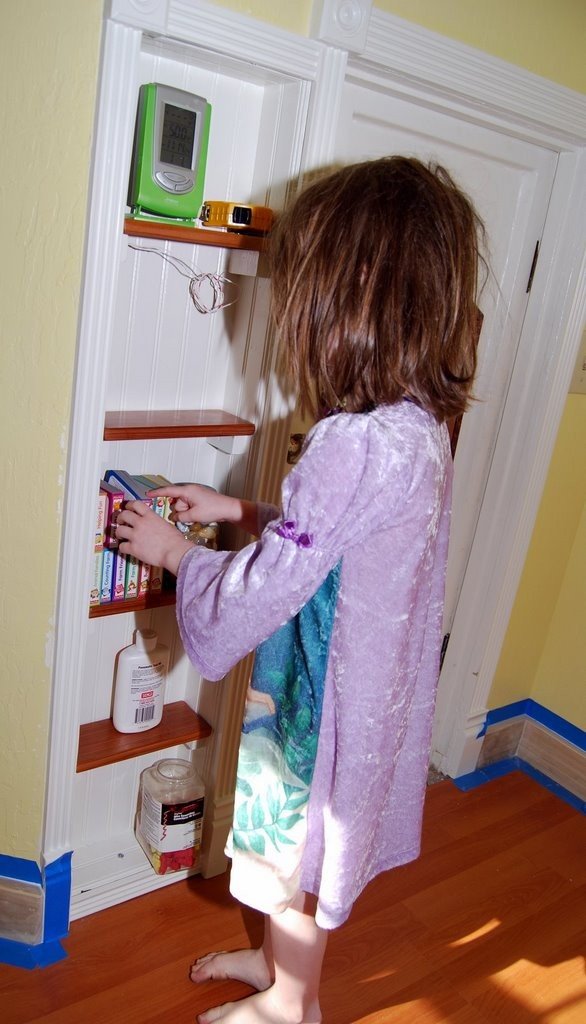
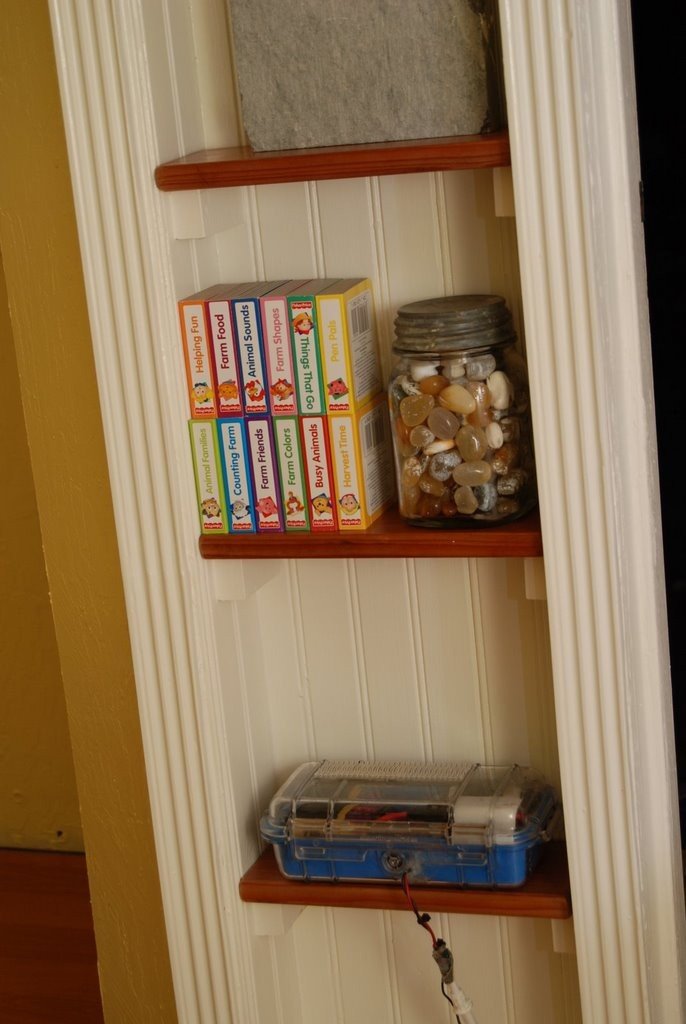
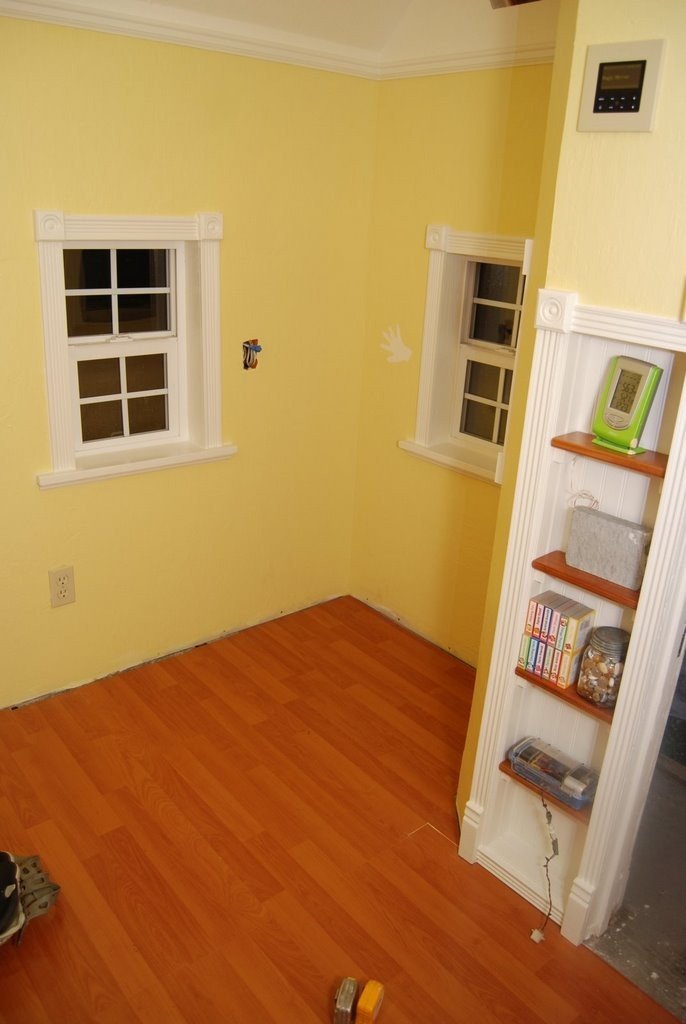 The built in bookshelf has bead board on the back and sides. The shelves are stained & lacquered Redwood which are glued on the shelves notches with Liquid Nails construction adhesive.
The built in bookshelf has bead board on the back and sides. The shelves are stained & lacquered Redwood which are glued on the shelves notches with Liquid Nails construction adhesive.






























